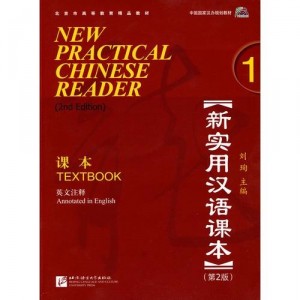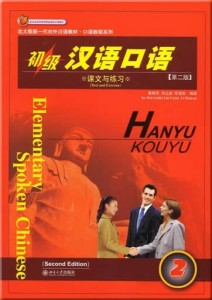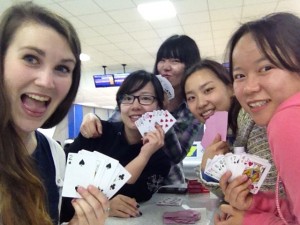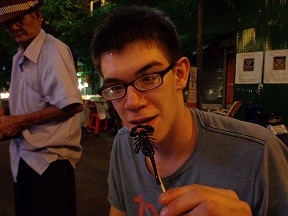Like us on Facebook for all TEIC news and updates about our teachers in China TEIC Facebook page
Game ideas for primary school students
Chinese primary students like games, especially competitive ones!
Megan Jarman has recently returned from a year teaching at primary school Shanghai, and here she shares some of the games that her students liked.
Body part flashcards
Before the class prepare a set of flashcards in the shape of different body parts and write a certain number of points on the reverse. Attach these to the board during class as you go over the vocab with the students, gradually building up the full body. Then students must compete to raise their hand the fastest after a countdown. The quickest student can identify a body part using the target language. If they are correct they come up to the front and remove that body part to find out how many points they have won for their team.
Pass the bomb
Students pass an object along their team as quickly as possible while the teacher counts down from 10. When the bomb “explodes” at 0 the student who is holding it must answer a question. Alternatively one team will pass the object down the line, each giving a relevant vocab word when it reaches them. No two words can be repeated. Each team will be timed. The quickest time wins the points.
What do you hear?
A representative from each team will go to the blackboard. The teacher describes something and they must draw what they hear. For example “The dog has a long tail and 3 legs”. A point will be awarded for each correct part of the drawing. Alternatively the students, in their teams, can be given a drawing of something with distinct features which they must describe it to the teacher to draw. Afterwards the drawings can be compared.
Rearrange the sentence.
Each team will get a set of word flashcards. In each round of the game 2 teams will have a number of representatives come to the front of the classroom. The students have to answer a question by making the sentence with the flashcards. For example “is it hot in winter?” “No it is cold”. Each one must stand with a word in the correct order. Get the rest of the class to read the sentences out loud to verify if they are correct.
Memory test.
This is a simple vocab memory game. Firstly stick the set of vocab flashcards on the board. Drill with the class getting faster and faster. Then draw a circle around one of the flashcards and remove it. Repeat the drill including asking the students to recall the missing card from memory. After each round remove another flashcard until you are left with nothing but circles on the board. Individual students then have the opportunity to come and recite the vocab depending on what circle is being pointed at.
Missing item.
Students pick out items of a bag to recap the vocab and target language as a class. They then place the items in a tray or flat surface. Students will then have to close their eyes while an item is removed from the tray. They will then have to name the item that has been taken.
Socialising with staff
The local teachers in your faculty will likely have at least double your work load, spending most of their time running to and from classes, meetings or training days. Because everyone works such long hours there are likely to be strong friendship groups within the school, almost like family.
If you are lucky enough to be invited to get-togethers where teachers let their hair down, it’s really important to go along and make a good impression. It doesn’t matter if your Chinese is terrible, all that matters is you go along, smile and be open and enjoy yourself. In the past it has been common for foreign teachers to join their colleges to karaoke, bowling or cards nights (pictured below), the cinema, or shopping.
What we look for in applicants & what to put in your CV and cover letter
Teaching English in China is all about thinking on your feet, having fun, being comfortable with public speaking and enjoying working with children and young people.
Teaching in China can be immensely rewarding but initially you may feel like you’ve been thrown into the deep end, as you start teaching shortly after arriving in China.
If you are interested in applying it would be good to highlight the following things in your CV:
* experience working with children
* experience with public speaking
* time spent working or studying abroad
* leadership positions
We’ve been very impressed with recent applicants, in the past few weeks we’ve spoken to people who: studied in Korea for a year, worked in the armed forces and instructed the Afghan army, presented radio shows, worked as fundraisers, coached jiu jitsu, are doing a PGCE, worked as student ambassadors and as lifeguards.
Whatever it is that you can bring to the table and can make you a fun, engaging teacher who can contribute to the education of students in China is very welcome.
To apply send a CV and cover letter to info@teach-english-in-china.co.uk
Q & A about teaching English in China
As part of a university project, former summer teacher Oliver Palmen asked TEIC Director Arnold Vis a few questions about teaching in China, the attributes needed for it and what’s gained by teachers in the process.
1. Firstly, when did you become involved in Teaching English in China?
I got involved with TEIC in 2005, a few years after I returned from teaching in China myself.
2. Why did you feel that a service like TEIC was needed?
I found a job in China online at the time, and I had a great time at my school. However before I went I felt unsure about what I was about to do, what would be expected of me and how things like the visa process worked. Whilst in China I also found that certain schools don’t have the best reputation, so I felt there was a need for a company that could help applicants better understand what teaching in China was about before they went, and help them find jobs at schools with a good reputation.
3. What do you look for in candidates for travelling over to China to teach English?
More than anything I look for people who think they’d have a good time with the teaching job. As a teacher in China the students will not always understand exactly what you are saying at all times, so it’s very important you have fun with it and create a good atmosphere in class. Generally I look for people who have some experience with what I consider the key parts of the teaching job: public speaking, being creative & thinking on your feet, and building rapport with the students.
4. How easy is it to find people with the right attributes for teaching?
In recent years I’ve been extremely impressed with the level of the candidates we’ve interviewed, and the schools have been very satisfied with their work. I think that’s been down to the videos, stories and pictures that teachers have provided over the years. I strongly recommend that applicants research the experiences of other teachers on our programme over the years, as I’ve found that it’s one of the best ways of ensuring people applying have a realistic sense of what it’s all about before they sign up for the programme. I feel this has played an important role in recruiting the right candidates.
5. What do you think helps when working as a teacher?
Mainly enjoying it as I mentioned, and remembering that making the occasional mistake is fine. The opportunity to practice with you, and to gain more of an understanding about life in other countries is invaluable for students in China, even if you don’t have lots of teaching experience and get everything right at all times.
6. Do you think teaching for two weeks is long enough to really experience China, or would you recommend a longer course, such as the two month placement that I went on?
Teaching is very intensive, so 2 weeks can be enough to experience lots of things you’ll remember for a very long time and give you insight into working as a teacher and life in China. A summer placement is a first experience and many people who worked on the summer scheme have gone back to China for work and studies after graduating.
7. Would you suggest having some time to travel and explore China while over there?
Definitely. China is such an interesting country that is changing all the time. On our placements you with a group of people who are all in the same boat, so I’d definitely recommend travelling afterwards.
8. What do you feel that teachers gain most from their time teaching abroad?
I think that depends on what you were looking for in the first place. I have an interest in politics and social science, so for me personally the thing I gained most was an understanding about life in China an insight about how young people in China view the world. I loved having conversation with my students about things like their views of other countries and what they wanted to do in the future. For other people the thing they gain the most may be the teaching experience or the friends they meet in China. Generally speaking I’d say an experience like living in China, so far out of your comfort zone, makes you a more resourceful and rounded person.
Paid teaching in Shanghai: first 2 months
NEW VIDEO: Helena Sykes put together this incredible video about her first 2 months on her long-term paid teaching position in Shanghai that started end of August 2014. Before arriving in Shanghai Helena spent 2 weeks in Beijing at the Beijing training camp. The video captures her entire journey, from leaving the U.K., to the Great Wall to teaching classes in Shanghai
How to survive as an expat in China
NEW VIDEO: Summer teacher Shane Voigt provides advice about adapting to life in China, including getting connected, handsigns, talking to taxi drivers, compliments…. and much more.
Exercise in China
Gyms can be found across the country, but they have yet to become a regular part of local life. Most use parks with ‘out door gyms’ (a few pieces of exercise equipment), or dance their with partners/big groups. Subsequently, they can be a little expensive. However, as with most things in China, they can be bartered for!
Pictured below is H3, a gym in the Jiading District of Shanghai. Membership fees are outlined as £40 a month, but three of our teachers got that price down to £25 (not that different from the cost of a Western gym) In smaller provinces, membership can be around £80 for the year. The gyms contain everything you’d find in a Western gym like weekly dance, combat and cardio classes. Many of our teachers join as a way to keep fit and meet new people.
By Helena Sykes, teacher in Shanghai
The Phases of Cultural Adjustment
Preliminary stage:
This phase includes awareness of the host culture, preparation for the journey, farewell activities.
Initial euphoria (sometimes called Honeymoon):
The initial euphoria phase begins with the arrival in the new country and ends when this excitement wears off. In this phase, discovering the new culture is an exciting adventure. The newcomer enjoys learning about the culture and partaking in local customs, including food, entertainment, sights and activities. This stage may last several months or may end quickly.
Irritability (or Hostility):
During the irritability phase you will be acclimating to your setting. This will produce frustration because of the difficulty in coping with the elementary aspects of everyday life when things still appear so foreign to you. Your focus will likely turn to the differences between the host culture and your home, and these differences can be troubling. It may be hard to reconcile how you need to behave in the host culture with your core values and beliefs. Sometimes insignificant difficulties can seem like major problems. One typical reaction against culture shock is to associate mainly with other Anglophones, but remember, you are going abroad to get to know the host country, its people, culture, and language. If you avoid contact with nationals of the host country, you cheat yourself and lengthen the process of adaptation.
People react differently in this stage. Some become angry at the host culture and see every little difficulty as an example of the inferiority of the culture. Others become withdrawn, sad, lonely and depressed. They may find it hard to do the smallest tasks. Some become ill, with real symptoms, but no identifiable cause. Some may even lash out at others from their own culture.
If you see other foreigners going through this stage, tread carefully. People in culture shock do not like being told that they are in culture shock. They see it as a belittling of the very real problems they may be having. You can help by listening and letting them vent. If someone is withdrawn, try to make contact with them. Invite them to do things with you. Encourage them to write or call loved ones at home. Try to help them find something they can enjoy about the new culture. If the person in culture shock becomes aggressive with you, don’t engage in arguments or debates. Stay away until they have calmed down.
If you feel yourself going through culture shock, keep in mind that it will get better. You will eventually find ways to cope with the differences and feel more at home. Stay in touch with friends and family- email is wonderful for this! Tell them your experiences- funny, sad, or annoying. Whatever you do, don’t make drastic decisions while in this phase. Many people give up on their adventure and go home rather than waiting it out until they feel better. Ten years from now, you’ll still be telling people about your experiences in China, long after the minor frustrations and irritations are forgotten.
The honeymoon and hostility stages are not separate and well-defined. You may be having a great time one day, miserable the next, and fine the day after that. Small problems can throw you into a culture shock episode, but you may go in and out of honeymoon and hostility for some time.
While the length of these stages varies for each person, there is a tendency to go into the irritation stage at about 3 months. This seems to be the time when the newness has worn off, and there are few new experiences to bring you back into honeymoon. If this happens, try to discover something about your surroundings that you haven’t already experienced.
Gradual adjustment:
When you become more used to the new culture, you will slip into the gradual adjustment stage. You may not even be aware that this is happening. You will begin to orient yourself and to be able to interpret subtle cultural clues. The culture will become familiar to you. Every day tasks will no longer seem so overwhelming and you will have found people, places and activities that offset the minor irritations. You will also find ways of adapting to the new culture without letting go of the most important parts of your own culture.
Adaptation and biculturalism:
Eventually you will develop the ability to function in the new culture. Your sense of “foreignness” diminishes significantly. And not only will you be more comfortable with the host culture, but you may also feel a part of it. Once abroad, you can take some steps to minimize emotional and physical ups and downs. Try to establish routines that incorporate both the difficult and enjoyable tasks of the day or week. Treat yourself to an occasional indulgence such as a favourite meal or beverage, or a long talk with other Anglophones experiencing the same challenges. It can be oddly reassuring just to find a familiar fast food place and have your favourite meal. Keep yourself healthy through regular exercise and eating habits. Accept invitations to activities that will allow you to see areas of the host culture outside the university and meet new people. Above all try to maintain your sense of humour.
Re-entry phase:
The re-entry phase occurs when you return to your homeland. For some, this can be the most painful phase of all. You will be excited about sharing your experiences, and you will realize that you have changed, although you may not be able to explain how. One set of values has long been instilled in you, another you have acquired in the host country. Both may seem equally valid.
From TEFL course (part of standard service option for long-term paid teaching September start)
10 tips about living in small cities in China
Faye Shaw is teaching at a state school in Lianyuan, a small city in Hunan province. She offers 10 tips about getting used to life in smaller cities in China.
1. When you first arrive in China, it’s likely to be a busy time. On our first day in our city we were taken out to breakfast, had a trip round the supermarket, then lunch, with a brief respite at the apartment before we were whisked away to go swimming in a nearby lake, and were then fed again. It’s tiring, but it’s good to be kept busy at first, getting to know your new colleagues, and when you finally get time to yourself you’ll appreciate it so much. Do put your foot down though and say no to an invite if you have planned to Skype family. And this is actually a good go to excuse should you ever have to get out of something.
2. Try to make your apartment as comfortable as possible; typically the working hours are low so you may end up spending a significant amount of time there. Take a day to get it as clean as you can and blast it with bug spray, then put up photos from home, or any other bits you’ve collected to make it a little bit more homely.
3. Make friends with the Chinese English teachers at your school. Invite them out to your cheap local restaurants or to play badminton. If you’re struggling to find other English speakers in the area then other teachers can be an important part of your social life. They may also be able to help with some things that your go-to person might not be as quite adept at- for us it’s anything to do with the internet, so one of our friends helps us to book train tickets and buy things online.
4. Learn Mandarin! Those living in a major city may find more people willing to speak to them in English, but after a while you may find you have no choice. It’s easier than you might imagine not being able to speak the language at first. Pointing gets you through the basics, and locals may tolerate it for a while seeing as you are a novelty, but living in a small town is the perfect opportunity to learn. If your school doesn’t offer lessons, then do an online course, (Michel Thomas is quite a good one: http://www.amazon.co.uk/Mandarin-Chinese-Beginners-Michel-Program/dp/0071547363). The spoken language of Mandarin isn’t actually too complicated and you can soon learn enough basics to use in shops, restaurants, and to explain to curious locals where you’re from and why you’re here. If the city you live in speaks with a strong dialect then use travelling as an opportunity to practice. Your students will always be happy to teach you new words so utilise them as well!
5. Be nice to the locals! You’ll probably end up frequenting the same shops and restaurants so always be polite.
Market in Lianyuan
6. Travel. While you’re in China try to see as much of it as possible. You don’t know when you’ll come back again. The big trips break up your time in China, and have smaller trips planned for the weekends to other nearby cities where you have friends from orientation, or know there are lots of other westerners. These trips are something to look forward to and make the weekdays go quicker because it gives you more to think about and organise lesson planning wise.
7. But do explore your city. Its size means you can’t wander too far and get horrendously lost. You might find some interesting places, and best of all might find some new joints to eat in.
8. If you have a lot of free time, use this as an opportunity to get a hobby or develop a skill. Learning Mandarin is an obvious one. I had never set foot in a gym until I moved to China and now I go almost every day. I’m also really, really good at naming countries capital cities… It’s also a good time to binge watch a TV series and read the books you’ve been meaning to, (books or a Kindle are a good idea because there is a tendency for the electricity to cut out more often than we’re used to at home).
9. Ignore the stares. I’m still not used to this eight months later. It’s hard to comprehend coming from such a multi-racial society in the UK, but in China you may be the first foreigner somebody has ever seen. It can be annoying, imagine struggling with chopsticks or shovelling noodles in your mouth to then see a table full of people staring, and maybe even taking pictures. There’s nothing you can do about it so it’s best to embrace it and smile. It’s a situation you’re unlikely to find yourself in again. Failing that, on the days when you’re feeling, basically pretty ugly and don’t want to be noticed, try to ignore it.
10. Anytime it starts to get tough, remember that what you’re doing is unique, and there won’t be many people with the same stories or experiences you have at the end of it. A lot of people wouldn’t be able to do what you’re doing at all- at least that’s what people keep telling me.
By Faye Shaw
Learning Mandarin
Lewis Tatt lives in Shanghai and he’s been teaching English in China and studying Mandarin for several years. The coming weeks he’ll talk about his experience learning the language, in terms of speaking, listening, reading and writing.
Today’s first instalment– Speaking Chinese:
The sounds:
To point out the obvious, Chinese is phonetically different to English. It therefore would be advisable to find a private teacher to help you at first, although this is not essential. A good alternative would be to use software such as Rosetta Stone or simply listening to the recordings that come with any good textbook. What’s important is that time needs to be spent listening to Chinese, because if you don’t even know what the Chinese language sounds like you definitely won’t be able to speak it correctly. Personally I didn’t learn pinyin when I began learning Chinese because, as a native English speaker, I was concerned that using pinyin as my pronunciation reference from the very beginning would run the risk of me thinking of the Chinese language in terms of English language phonemes. Pinyin is extremely useful as a guide for how to pronounce words, but it is important to understand that the letter “R” in pinyin represents a sound very different to the “R” in English. The more you listen to Chinese the more familiar you will become with the sounds. Repeated exposure to spoken Chinese and a considerable amount of listening are very helpful.
The tones:
Chinese has a reputation for being difficult because of “the four tones”, and almost every English-speaking learner has at times struggled with this aspect of pronunciation. Those self-studying usually have a more difficult time, not because the tones are so difficult, but simply because of the tendency to be intimidated by the tonal aspect of pronunciation and as a result neglect it. I have met many self-learners who believe they can say a sentence in Chinese but when asked what the correct tones are for each word it turns out they do not know. The simple fact is that speaking the correct tones is infinitely more difficult if you don’t even know what the correct tones actually are. There is no point even trying to say a word in Chinese if you haven’t learnt the correct tone. You might be able to guess, and there is a one in four chance you will get it right. But there is also a three in four chance you will get it wrong, and each time you pronounce the word wrong you are teaching yourself incorrect pronunciation, which will take more time to correct that the amount of time it would have taken to learn the correct pronunciation in the first place. There is one very simple fact with speaking Chinese: if you learn a word but can’t remember what tone it is then you haven’t learnt that word.
Learning the tones is actually not difficult at all, but it takes time and can be tedious. In order to remember the tones I would write the tone marks above each word/ character whenever I write it or see it. Most elementary level textbooks have the texts written in both pinyin and characters. Read the pinyin text then read the characters text and write all the tones above each character. Then look back at the pinyin and see if the tones are right. Circle each character you wrote the wrong tone for so you have a strong visual indication of the frequency with which you put the wrong tone. Hopefully you should be able to see that frequency go down as you study more. Similarly, every time you write a sentence write the tone marks above each word and then check them in the dictionary. It’s time consuming, but it works. You can also try to be more creative, perhaps making flashcards with the pinyin/character on one side the tone on the other. You can play simple games in which you match words/characters separate them into groups on the basis of tones, flipping the card over to reveal the correct tone after you have guessed it. However you go about learning the tones, it is only when you know the correct tones for a word that you can then attempt to pronounce that word.
The speaking:
You need to speak lots. Saying the word once is about as useful as going to the gym and doing one pull up. You might learn how to do a pull up but you won’t do much to exercise your body. Similarly, you might learn how to say a word but you won’t exercise the part of your brain processing these new words. You need to give your brain a workout, so listen to the recording that comes with the textbook, then record yourself speaking and listen back to it. It can be painful listening to your own voice, particularly when it’s mauling a foreign language, but it has to be done. If your hair is in a mess it is difficult to correct without a mirror to see what it looks like. If your pronunciation is a mess it is difficult to correct without a voice recorder to hear what it sounds like. A simple smartphone app will work perfectly. Record yourself, listen to yourself, listen to the textbook recording, record yourself, listen to yourself again. To increase fluency simple pattern drills are a tried and trusted technique. An English sentence pattern drill might be as follows: “I am a student. He is a student. She is a student. My mum is a student. My dad is a student. My dog is a student…” It doesn’t actually matter whether you, your mum, or indeed your dog, are students or not. What is important is that you speak these sentences out loud so that you are able to use the sentence structure without having to consciously stop and think how to say that sentence.
The rhythm:
One source of immense amusement for many Chinese is how native English speakers will “sing” Chinese. Whenever native English speakers speak Chinese they will “sing” everything. Many Chinese people will go as far as mimicking this way of speaking whenever they talk to someone they believe to be a foreigner. This is because spoken Chinese has a completely different rhythm to spoken English. If you maintain the rhythm of spoken English when speaking Chinese the result is that, to a Chinese speaker, you sound like you are trying to sing. Even more problematic is that maintaining the rhythm of spoken English when speaking Chinese makes it almost impossible to say the correct tones.
There is one very simple way around this. Speak. One. word. At. A. Time. This might result in the speaker sounding like the Chinese equivalent of Stephen Hawking’s robotic voice, but no one ever had trouble understanding the pronunciation of Stephen Hawking’s robot voice. By contrast, lots of Chinese people do have trouble understanding foreigners with terrible pronunciation. The intonation and rhythm of spoken Chinese is very different to that of English. Furthermore, each syllable in Chinese is a separate word, so completely breaking down the rhythm of your natural speaking and pronouncing clearly each individual syllable when you speak Chinese will result in Chinese people considering you to have a surprisingly clear and “standard” pronunciation. You might feel stupid at first, but to a Chinese speaker you will sound far less stupid that someone who is attempting to “sing” Chinese with incorrect tones. Chinese is very different to English in terms of tones, intonation, rhythm and phonemes, so if you don’t feel stupid when you’re speaking it then you’re almost certainly not pronouncing it right.
By Lewis Tatt
Sample lesson plan: Tongue twisters
What are Tongue Twisters?
*Puts together sounds in a confusing way
*Challenges your pronunciation
*Super fun!
How to play:
*Get into rows (your row is your team)
*I will show you some tongue twisters and practice how to say them with you
*You and your team will have 2 minutes to prepare
*Each person in your team will stand up, say the tongue twister, and sit down in order
*Try not to make any mistakes!!
*I will time you – the team with the fastest time gets a point!
Tongue-Twister #1
Tongue-Twister #2
Peter Piper the pickled pepper picker picked a pack of picked peppers.
Tongue-Twister #3
She sells seashells by the seashore
Tongue-Twister #4
Willy’s real rear wheel
Match up these words into pairs. Sound them out. Which ones have the same sounds?
*Meat
*Fun
*Hair
*Blue
*Such
*Glue
*Scared
*Feet
*Run
*Much
*Brother
*Glum
*Jump
*Bull
*Sit
*Thump
*Mother
*Full
*Hit
*Drum
Lesson By Emma Toll
Cost of living during a summer internship in China.
Helena Sykes worked in Haining last summer on the summer internship, and told us about her spending during her time as an intern.
What the school provide:
*Helena stayed in a nice hotel that the school paid for. She shared a big room with a fellow female intern, and both had double beds in an ensuite room.
*The school also paid for all her meals.
Breakfast would be rice, noodles, and fruit
Lunch and dinner would be similar: Fried meat, stew, Rice and vegetables.
What she spent her money on during her internship:
*Trips to the supermarket: about every 4 days a group of interns would go for a big shop at the local supermarket and buy things like:
Snacks for in the rooms
Water
Sweets for the students in class
Beer for film nights at the hotel
That would cost about 100 to 150 RMB (£10 to £15) every 4 days
*Eating out: because the meals were very similar every day, at times she ate out for dinner. Mostly that wold be a local restaurants where a group of interns shared lots of dished for about 20 RMB (or £2) per person.
Sometimes it would be a Western oriented restaurant like KFC or Pizza Hut, where a smaller meal would cost more, about 30 RMB or £3
Other regular costs were:
* Water(daily) large bottles 3 RMB or 30 pence.
* Taxis: She lived about a 15 minute walk from the teaching site, but because of the heat a group of interns would regularly take a taxi and take turns paying the 15 RMB (£1.5) fare,
All in all Helena’s spending during her month comes to about £135.
The school offers pocket money of £120 per month.
We advise interns to budget for £200 per month to be on the safe side.
Not all schools provide all meals, and other spending in terms of going out and transport may vary as well.
Accommodation is always fully paid for by the school.
Cost of living in a small city in China
Faye Shaw started teaching at a Middle School in Lianyuan, Hunan province in September 2013.
Lianyuan is a small city by Chinese standards, with a population of about 1 million.
She is currently on her winter holiday and briefly returned to the U.K. She joined us at Huddersfield University yesterday and told us about the cost of daily life in her city.
At her state school Faye is paid 5000 RMB per month, which is £500 in pounds.
Her accommodation is provided for free (she shares a large apartment with another teacher from the U.K. from our programme).
Her daily spending on food is limited; she usually has lunch at the school cafeteria, where food was provided for free the first month, and she now pays 4 RMB per day (40 pence in pounds).
For dinner she usually goes to a local noodle bar, where she eats noodles for about 10 RMB (£1).
Faye estimates that she spends about 1500 RMB per month in Lianyan (£150) on living expenses.
Because Lianyuan is a small city she goes to Changsha about once a month for a long weekend.
Changsha is a big city and with more expat oriented bars and restaurants, which are considerably more expensive than the ones in Lianyuan. She would also shop for clothes in Changha. Including accommodation a long weekend there costs about 1000 RMB (£100).
So including trips she spends about half her salary per month, and saves the rest.
These prices apply to a small city like Lianyuan, food prices are higher in bigger cities like Wuhan.
Mandarin text book review, by Lewis Tatt
Lewis is a teacher in China and has been studying Mandarin for years
For those intending to become long term learners of Chinese who want to reach advanced level and understand more cultural aspects relating to the language, particularly if they intend to begin their study whilst still outside of China, there are two particularly useful textbook series that can be used as an entry point:
New practical Chinese reader

New practical Chinese reader is a series of six textbooks from absolute beginner to upper intermediate. Textbooks 1-3 are beginner and elementary level. Textbook 4 crosses over to the intermediate level, which is covered by textbooks 5-6. The series was designed by Hanban, which is the government department responsible for teaching Chinese as a foreign language and running the HSK exam system. This is the standard university textbook at many universities in the UK, America and Australia.
This book is not necessarily the best option for those wanting to learn Chinese quickly, but for learners aiming to reach complete fluency in all areas of reading, writing, speaking and listening this series is highly recommended. The first four textbooks follow a group of Chinese and non-Chinese characters, and come with DVD videos of the dialogues. Books 5-6 are non-character based lesson texts suitable for more advanced learners who have progressed beyond language required for everyday conversation.
The acting in the videos is bad to the point that it can be funny, but if anything the resulting amusement helps the learner to remember vocabulary and sentence structures. Lesson texts often emphasise cultural aspects of China, with the characters discussing issues as diverse as why Chinese people speak loud in public places and the one child policy, as well as mildly amusing scenes such as one in which one of the young male characters, having married a Chinese girl, becomes confused as to how he should refer to his parents in law. One of strength of this series is the relatively high frequency with which grammar points and sentence structures reappear in later lesson texts, enabling them to be remembered more easily. However, some chapters contain low-frequency vocabulary that learners may not find useful at pre-intermediate level.
Integrated Chinese:

Integrated Chinese is the most widely used Chinese language textbook series in American universities, and is also widely used in the UK. As with New Practical Chinese Reader this series is aimed at giving the reader a wider understanding of China, not just language learning, and every chapter has useful cultural notes for those new to the country. Again, similar to New Practical Chinese Reader this series has a core textbook with supplementary workbooks. The series has a total of four textbooks that are intended to cover two years of university study, which should leave the student at a low intermediate level not as high as New Practical Chinese Reader would with its six textbooks. The series is Taiwanese in origin and therefore comes in simplified and traditional character editions. It is important that anyone planning to travel to mainland China should make sure they pick up the simplified character edition if they decide to use this series.
The lesson topics featured in Integrated Chinese are in many ways more useful to everyday situations than some of those in the New Practical Chinese Reader series. The audio recordings usefully come in three different speeds; slow, medium and fast, and the third edition now includes DVD recordings of lesson texts. The grammar and language explanations are very clear and, although opinions vary from learner to learner, this series overall is perhaps slightly more enjoyable to learn from New Practical Chinese Reader. The downside is that, unlike New Practical Chinese Reader, it is not written to the HSK exam criteria and is unavailable at bookshops in mainland China. Integrated Chinese also features some vocabulary items that would be used by Taiwanese but not mainland Chinese, and thus will sound strange to mainlanders (for example using fan to denote a country’s food when mainland Chinese would say cai.) One particularly bad element in the second edition of this series was how the first textbook explained the phonetic sounds and tones of Chinese in an intimidating way that made the language sound far more complicated than it really is. Without a teacher such opening chapters in any series are often of little use to someone self-studying.
For those who are wanting to progress as quickly as possible and are focused on just developing their language ability the following series are easily available in China and worth considering:
对外汉语 (duiwai hanyu):

The fact the covers of this series of textbooks contain no English can perhaps be seen as an indication of how they take the readers attempts to learn the language quite seriously (the title duiwai hanyu translates as “Chinese for foreigners”.) This series is widely used at both universities and Mandarin training schools in China and covers the basic language up to third year university level. Each level in the series comes as a core textbook with separate listening, speaking and reading textbooks. These textbooks lack much of the cultural aspects, interesting presentation and extra learning resources featured in other series’ commonly used in universities outside China. However, despite the slightly less enjoyable learning experience the series arguably results in a quicker language progression.
As with any textbook each lesson dialogue is based on a particular context or topic, such as ordering food or visiting the post office. Usefully each level in the series re-visits the same topics featured in the previous textbook, reviewing the former textbook’s vocabulary and grammar whilst introducing more advanced grammar and vocabulary items. By the end of the series the reader should be able to confidently communicate in a wide range of practical everyday situations.
Because the series is split into separate textbooks the learner can choose to focus on the aspects they want to progress most in. For example, if the reader is not so concerned about developing their reading skills they can just work though the main textbook and the listening book. Vice-versa, if the learner has already reached a high conversational level but has neglected their reading they can purchase the reading textbook separately and work through it. One downside to this series is that, due to the speed at which it progresses, the reader can sometimes find the level too difficult and/or become frustrated, particularly if entirely self-studying without access to a Chinese teacher.
Spoken Chinese Series:

This is a very good series of textbooks for developing the learner’s ability to communicate orally and has six books in total, two for each level (elementary, intermediate and advanced.) There are also two other textbooks that act as crossover points between the three levels
Being a spoken textbook series the lesson texts up to intermediate level are based entirely upon dialogues between a small set of friends studying and living in China. The advanced level textbooks introduce non-dialogue based texts alongside the dialogues, whilst the “quasai-advanced” textbook, which feels like an add-on to the series, strangely drops the dialogues completely. The texts are not only practical but also interesting. For example in one dialogue one of the female characters questions a friend about the boy she saw her with, thinking it was a secret boyfriend, but it turns out to have been her brother. The series is full of colloquial expressions that will not only make it easier to communicate verbally, but also make the learners speaking sound more natural. The voce acting in the recordings is also not bad, bringing the dialogues to life and making it easier to study, whilst the grammar explanations are clear and simple.
The downside to this series is that although it assumes the reader is also learning to read and write it does not itself feature reading and writing exercises. At Chinese universities this textbook is often used for oral classes with other dedicated textbooks being used for reading and writing classes. Once the student knows how to write Chinese characters this series can be used alone but time needs to be spent practicing writing the sentence structures and new vocabulary that are introduced. Also, some of the spoken phrases in this series are slang phrases that are particular to northern China and not used in areas such as Shanghai or Guangzhou.
Due to the oral nature of this this series any learner using this book alone will of course be able to speak well and have little trouble reading spoken Chinese, such as text messages and social networking site posts. However, relying on this series alone they will have trouble reading more formal non-spoken Chinese, such as newspapers and magazines.
By Lewis Tatt (Lewis worked in Wuhan through Teach English in China between 2010 and 2012, before moving on to work for a primary school in Shanghai).
LESSON PLAN: Topic–Beginner Idioms (Theme: Animal Idioms)
Goal: Enhance previous knowledge of idioms and practice the use of idioms in conversation.
Introduction Game: I have not had some of the beginner class yet so I’d like to start with a name game.
Name Game – Count the number of letters in your first name. Find a person in the room with the same number of letters as in your name (if need be you can reduce the name to a nickname. For example, Joseph could become Joey or Joe.). The goal is to find a partner as quick as you can. When the room is paired off the pairs introduce each other.
Warm Up Game: Write down as many idioms as you know. After 2 minutes of writing I’ll have them refer back to that list to see if they could write down the meaning or the appropriate context for those idioms. Go around the class to share idioms – any involving animals I’ll put up on the board to introduce today’s theme – Idioms used with animals.
Idioms to be Taught:
Curiosity killed the cat
Raining cats and dogs
Til the cows come home
Go to the dogs
To take the bull by the horns
A bird in the hand is worth two in the bush
A bull in a china shop
To be stubborn as a mule
To be as slippery as an eel
To be as strong as an lion
To be as proud as a peacock
To be as blind as a bat
To be as cunning as a fox
To be as free as a bird
To be as brave as a lion
To be as wise as an owl
Sounds Game: I will ask for a volunteer to come up to the room and hand them a slip of paper. They will read the first part of the idiom and act or sound out the animal part. For example, “To be as brave as a lion” they would say “To be as brave as ……” then let out a ROAR or make a ferocious sound to indicate to the class that the appropriate animal is a lion. We will go through first 15 in the list above.
As we go through each idiom, I will ask if they know the meaning and if not give a definition.
Reading: I will read a short idioms story found on that involves animals. I have tweaked the story to include some of the idioms we have already learned and there are a few more intertwined that I hope they will pick up on.
They should identify as many as possible and write them down as I read the story. We will go through them after.
End Game: I will provide them with paper and coloured pencils and ask them to draw out one of the idioms we learned.
Game by Arielle Bean (summer teacher in Shaoxing in 2012). this game and many more will be part of the new Lesson Plan Library that will be accessible to all applicants on the standard serviced option soon.
Strangers in a Strange Land: Life in a Chinese Expat Community
When moving to live and work in a country like China, the expat community you become part of can play a big role in determining how easy you find it to integrate into your new society and how much you enjoy your stay abroad. Unless you have pretty good Chinese before you arrive, you will probably find yourself spending a lot of time with the other foreign teachers in your area and even if you do have Mandarin, you will still feel the need to speak to people in your native language every now and again. This is a particular issue in Wuhan, where I live, as basically no-one speaks any English so to talk to anyone other than expats I have to rely on my Chinese. Often, although my Chinese isn’t too bad, all I want to do is hang out with some friends without having to constantly be concentrating on translating what everyone else is saying in my head. This means I spend a lot of time with other foreigners, which has given me an interesting look at what it’s like to be one of a small number of expats in a very foreign place. It’s inevitably a little weird at first – you don’t know each other, but you are kind of forced to get to know and like the other expats simply because they are the only people in the city who speak your language. Also, because your expat group will be pretty small, there will probably be times when it really gets on your nerves. But, in spite of this, relationships between expats tend to be pretty close – the friendships I have with some other teachers out here are as close as any I have ever had.
The first way in which the expat community in Wuhan had a significant impact on my life out here was that it made my period of settling into life in China a hell of a lot easier than it would otherwise have been. When I first arrived the Chinese company I was based with wasn’t all that helpful and didn’t give me all that much help beyond sorting me out with a place to live. I had to figure out pretty much everything myself from how to get to work to where I could buy stuff for my new place. Without having other expats to ask about this, I would have struggled a great deal with this kind of thing. However, my company had asked me to let one of its more experienced teachers stay in my flat until he could find a place of his own. He took me and my flatmates for a drink with some of the other teachers who had been in Wuhan for a while and I got to know a good portion of the group then. Over time, I they introduced me to other people they knew and I met even more new people through the bars and other places they introduced me too. Because we spent time together socially early on, I was in a position to ask them for help when I needed it. Having other English speakers to ask about my new city made a huge difference to how easy I found it to settle in Wuhan. I found almost all the expats living here to be very friendly and willing to go out of their ways to help me out, which I really appreciated. I think that because everyone who makes this kind of move has experienced how tricky the first weeks and months can be, so are naturally inclined to sympathise with a confused new arrival. I certainly was – when a group of new teachers arrived early this year I did my best to help them out any way I could because I remembered how difficult I, and everyone else who arrived at the same time as me, had found to get used to life here. If I was pushed to give what I thought was the most important aspect of becoming part of an expat community in China, it would be that it provides a support network that, in my experience, you are unlikely to receive from your Chinese company.
Although I certainly can’t generalise this to all expat communities as this part is strongly dependent on the people who make them up, the group in Wuhan has a very active social life and we do a lot together. We hold barbecues, go out drinking, have days out in the city and take trips to other places in China, not so much as a group forced to be together by expediency but as a group of good mates. Perhaps because only a few kinds of people choose to move so far around the world, or perhaps because of pure happenstance, but I get on really well with most of the other foreigners who live out here. We do stuff pretty much every weekend and enjoy each other’s company. As well as the social aspect, we often help each other out with tips on job offers, new places to check out and advice on how to deal with some of the trickier aspects of life out here. A good example is one of the best experiences I have had living here – a holiday a couple of other teachers and I took to South East Asia during the Spring Festival holiday. We had a great time and all found the experience a lot easier than it would have been if we had attempted it alone. It’s tough for Chinese people to pay for and get Visas for trips abroad, so expats are pretty much your only option for company on trips outside of China. Without the expat community, my life out here in Wuhan would be a lot more boring. This isn’t to say I don’t have Chinese friends – I do – but rather that I do rely on other foreigners for a significant proportion of my social life in China.
Although being part of the expat community in China has been a really rewarding experience, there have been parts of it that I found problematic. The first isn’t really the expat community’s fault, but it is a problem I associate with it. When you have the option of spending time with other English speakers, it can be very tempting to spend basically all your time with them and not bother getting to know any of the locals, which to my mind would be a mistake. One of the things I have enjoyed most about living in China has been getting to know and becoming close to some Chinese people. This has both deepened my understanding of the society I am temporarily part of and given me the spice of some variety in how I spend my time. Some of the expats I know out here have very few or even no good Chinese friends, although most have at least a couple. This is more of a personal thing than a problem with expat communities themselves, but it is very easy to fall into the trap of only spending time with other foreigners.
Another problem, which has much more to do with the intrinsic nature of an expat community, is that it can be quite difficult to deal with any problems that arise between people within the group. Expat communities tend to be pretty small, but in the less Westernised parts of China they can be tiny. The group I’m part of in Wuhan has around thirty regular participants and although there are a good number of other foreigners who aren’t in this particular group, based on my experience I’d say we represent a significant proportion of the total number of foreign teachers currently living in Wuhan. This means that fallings out or misunderstandings between individuals tend to affect the entire group and can prove difficult to resolve. I have noticed that there is a slightly worrying tendency to just ostracise people who most of the group find annoying or don’t get on with, which doesn’t really fit with the friendly, open picture I painted of expat life in the above paragraphs. I guess it would be fair to say that expat communities are great if you fit in, but if you have trouble with this then you are not going to have such a good time. This happened to one guy I know after he got really drunk at a party and irritated the hell out of everyone by stripping off and refusing to leave or put his trousers back on. He wasn’t particularly well liked anyway, so even though this wasn’t that bad, he got ignored a lot after that. Although this is understandable – the groups are so small that it is fairly easy for someone to get on the wrong side of most of the expats they know – it still sucks if you are the guy being pushed out. As well as this, when disagreements occur between people who are usually pretty close it can get nasty. Again, it is the size of the group that is the problem – it is very hard to avoid someone to let them cool off when basically all your mates are their mates too. The longer I have been here the clearer it has become that I know basically every other foreign teacher here and am only one degree of separation away from the ones I don’t know personally. This means that it isn’t really an option to give someone a little space – you inevitably have to either deal with the problem, which isn’t always easy, or risk messing up the whole group’s dynamic. This happened to a couple of my friends recently – they got in an argument during a poker game which escalated when neither proved willing to back down and lose the pot. They rest of the players inevitably took sides and the whole thing got pretty heated. At the moment those two don’t really want to talk to each other, but are struggling to avoid seeing each other and have been consistently snappy and aggressive when they do talk. Back home they could have taken a little time to cool off, but that is a lot harder to do when you are both part of the same small group of expats.
Despite the problems I have occasionally encountered with being part of the expat community in Wuhan, I have really enjoyed being part of its expat community. Basically, we are all in pretty much the same position and the impulse to make friends and help each other out generally overcomes any problems you might have with the groups other members. For me, there was one person I didn’t much like when I first met him but spent time with anyway because we were both part of the same relatively small group and after a while, I found I had started to genuinely like them. Being an expat is a foreign city is a once in a lifetime experience for a lot of people and for me at least, it has been one that was greatly enriched and improved by being part of a wider community of foreigners.
Adam Lorimer, English Writing Teacher, Wuhan Donghu University
How to Prepare for China
By Frances Upton, long-term teacher in Wuhan.
With many people planning on heading out to China for the summer, or starting on the long-term programme in September, I’ve been thinking about advice I can give to anyone who’s planning on TEFL-ing in China; such as, what to bring and what needs to be done do to prepare, both physically and mentally.
China is a pretty daunting place, especially at first, so I tried to prepare myself as best as I could by scouring the internet for other blogs that might offer some insight into What It’s Really Like. Inevitably, no matter how vigilantly you prepare, you will be hit by many many ‘unforseens’. So I thought I’d share my experiences so far and write a kind of guide on how to prepare for a move to China, be it just for the summer or a bit more long term like Alex and I.
First of all, the boring bits:
The Admin…
Visas (paid teaching programme only)
We had a lot of time to psyche ourselves up for China due to many frustrating visa delays (trying to get your visa around Spring Festival time in February takes significantly longer than the rest of the year). Usually I think it’s a pretty quick and easy process. Teach English in China were really helpful with explaining the whole process, as well as being on hand to reassure us whenever I panicked that it was taking so long (which of course was several times).
Basically, how it all goes is; after you’ve emailed all the required documentation to your employer (signed contract, medical form, passport copy, CV, and copies of your degree certificate etc), they send you an invitation letter and a foreign expert certificate via post. We thought this would take up to 10 days and were pretty surprised when it only took 3 or 4 to get to us. Then we filled in the online form and booked an appointment at the Chinese Visa Application Centre in Manchester, submitted all our documents, bit my fingernails for 2 days convinced (for no reason in particular) that we’d get rejected, then collected it on the 3rd day. We booked our flights within 2 hours and were on the plane to China in 3 days! It was pretty crazy how quick and easy it was once we’d received the documents.
But it doesn’t end there…
In-China admin (paid teaching programme only)
The visa business doesn’t end with the pretty looking new page in your passport permitting your entry into China. This expires within 30 days, which you then have to convert into your Foreign Experts Permit and Working Visa once you get here. The school helped us with all of that. The only things we had to do ourselves were; registering at our local police station once we had our apartment address and doing a medical check (dead easy, don’t worry too much about that. They just want to make sure you don’t have any contagious diseases or serious conditions).
Once they’re done, someone from your school will take you to the Public Security Bureau (PSB) where you fill in some forms, and voila! A few weeks later you’re officially an Expat in the PRC!
Travel Insurance
Most schools provide some sort of medical cover but you will need your own policy. We went with a long stay worldwide cover for just over £200 for the both of us with Alpha Travel Insurance.
Flights
We spent quite a lot of time hunting round for the best deals for flights to London, and after considering booking with a travel agents, we found it was much cheaper on Skyscanner.com. However, be warned that the price listed isn’t necessarily how much it’s going to cost you as sometimes the flights aren’t updated instantly. We booked ours through a company called 9Flights listed on Skyscanner, and flew over with China Southern. One-way flights are usually anything from £400-£600.
‘Qian’ (money)
We spent a few weeks leading up to China looking around all the travel agents for the best Pound – RMB (Yuan) exchange rate and then found that the best way to do it was to order our currency online. We found a pretty good website called www.iceplc.com which are really reliable and only took 3 or 4 days to get sent to us via recorded delivery. The exchange rate at the time (March 2013) was 9.2 RMB to £1…Obviously this changes.
Try and bring as much money as you can with you. Our company recommended that we brought around £800-£1000 (*for private schools that pay you a housing allowance and you rent your own place. If the school provide accommodation you do not need money for a deposit, so brining a bit less is OK in that case) for the initial month and a bit until our first pay cheque. I’d say bring a bit more if you can. Everything’s ridiculously cheap over here so if you’re clever and budget properly then you’ll be okay. If you’re doing a long-term contract and if your school don’t provide accommodation, like ours doesn’t, then you’ll need enough money for a deposit and usually landlords will ask for you to pay up to 3 months rent at a time. It sounds like a lot, but rent is very cheap over here compared to UK prices!
We also didn’t know until we got here that we’d be able to use our UK bank cards so easily. And as far as we know, the charge was only around £1.50. You’ll need to make sure that you tell your bank that you’re going abroad beforehand though, otherwise it will most probably get blocked.
The More Practical Planning Aspects…
Whenever we go away, I always buy a Lonely Planet book and a little pocket phrase book. It actually might be the most fun part of it all. The Lonely Planet China book is a bit of a brick but it has everything you need to know about every province in China.
Language
The phrase book was initially a pretty good buy and lived in my handbag for the first month. But when you’re living somewhere, you can’t really keep resorting to a little touristy book. Plus, you’ll definitely pick up much more Chinese than you think if you just put your mind to it. Having Chinese friends and getting to know people at work helps a lot. For the slightly awkward, cringy moments when you find yourself gesticulating wildly to a shop assistant mumbling English that you know they can’t understand like a mad woman, the TrainChinese app for iPhones (and I think Androids too) is an absolute life saver. It’s only really good for words rather than full sentences though, so I wouldn’t rely on it too much. Also, it offers no help whatsoever on The Dreaded Four Tones.
If you have enough time before coming to China, I’d say try and get on an intensive Chinese course for a few weeks, just to begin to ease you in a bit. I had ten lessons at Uni last year which helped a little, and also Rosetta Stone is really good.
Clothes & Cosmetics
Fella’s – if you have big feet, stock up on shoes back home! The biggest we’ve found so far is a 43 (around an 8 or 9). It is possible to find bigger sizes if you know where to look, but I’d bring a good few pairs just in case!
Ladies – Cosmetics in China are on the whole pretty expensive. You’re looking at £30+ for average foundation and £50+ for a decent bottle of perfume. Stupidly, I’d assumed I’d be able to find my colour foundation out here, but having darker skin than most Chinese women, it’s pretty much impossible, so I ended up asking my sister to send over several bottles good ol’ Maybelline, but postage really isn’t cheap so stock up before you leave!
Also, probably the most important thing for girls. (Sorry guys!!) It is not a myth, finding tampons over here is pretty much impossible. Before I came out, my mum and I stocked up on what we estimated would last about 6 months, which got me a really funny look from the cashier in Boots, and I’m sure Security had a good giggle when my bag went through the scanners at Heathrow. We were way off so just bring more than what you think is LOADS.
One thing we found when we arrived, was that although our contract had said the dress code was ‘smart’- i.e shirts, ties and smart trousers for guys and smart trousers and skirts for girls, when we went into work for the first time we found everyone dressed really casual in jeans and t-shirts. The most annoying part was that we’d used up so much of our suitcase space bringing all our smart clothes, plus more that we specially bought, which we haven’t even worn once. So my advice is check with your school beforehand what the dress code actually is.
Other very important things…
If you love Haribo as much as I do, stock up as much as you can. And chocolate. Although you can find it here, it’s not the same, just Snickers, Hershey’s and Dove (Galaxy).
Also, now, I feel pretty ashamed actually writing this, being fundamentally against any form of e-readers since they came out, but if you don’t have one and you read as much as I do, get a Kindle. I haven’t been able to find a single bookshop in Wuhan that sells English novels (although I am assured rather elusively that there are a couple…). And apart from bringing three of my favourite books over, I’ve had to resort to stealing Alex’s until mine arrives.
Facebook, Twitter and YouTube and most blog providers in general are all banned in China, but if anyone’s interested, there’s a really good iPhone app called ‘VPN Express’. Skype’s the best way of keeping in contact with people back home. But most people in China use WeChat and QQ to communicate out here so make sure you get an account.
Don’t forget mains adapters! European mains adaptors work as well as the Chinese variety.
What to Expect
All these things will help you prepare for China as best as you can, but there are certain things you’ve probably heard about. Just make sure you expect them, because as what often happens, reality will not match up to your expectations. It’ll be daunting at first, as it still is for us sometimes, because new things always are a little scary.
1. People will stare at you from the minute you step off the plane. Just smile and say nǐ hǎo even if all you want to do is run away back home!
2. People spit. A lot. And everywhere. It’s not even just spitting, it’s proper hocking like you’ve never heard before. Waking up to the sound of your neighbours morning phlegm just becomes part of routine.
3. Squat toilets aren’t as bad as you think. Some can be beyond vile, but again, on the whole, you just get used to it. Also, take tissues with you everywhere, as they don’t provide loo roll in public toilets.
4. Come to terms with the fact that milk and cheese will no longer be such a big part of your life. You can find it, but it’s pretty expensive and just not the same.
5. Chinese food is absolutely nothing like Chinese food back home. We’ve found one place where we can get Sweet and Sour Chicken, but apart from that, especially in Wuhan the food is really spicy. It’ll take a bit of getting used to, particularly while you master The Art of Ordering, but it actually is great!
Most importantly though, have an open mind and be brave. Just try and experience as much as you can in your time here; there is so much to see and learn about China. Because like we’re learning only much too quickly, your time will fly by over here!
By Frances Upton
The teacher-student relationship: Language learning and practice beyond rights and wrongs
The purpose of this article is to cast some light on the issues surrounding how to manage the student/teacher relationship in China, and how to overcome the conflict within language learning between the need to maintain ‘face’ and the need to make mistakes.
Playing with Power:
Students will generally default to treating the teacher as an authoritative figure. Obedience and respect towards one’s elders are fundamental to Chinese culture, as laid out in the Confucian principle of ‘filial piety’. This relationship can also be traced back to early prescriptivist teaching methodologies that were based on translation and the acquisition of grammatical rules. Here a teacher would stand at the front of the class and dictate language rules and structures to the students:
‘Typically, Grammar-translation methods did exactly what they said. Students were given explanations of individual points of grammar, and then they were given sentences which exemplified these points. These sentences had to be translated …accuracy was considered to be a necessity.’ (Harmer, 2007 p.63)
Unlike communicative activities, when it comes to grammar there is usually a ‘right’ and a ‘wrong’. Saying ‘I can have the bill’ instead of ‘can I have the bill?’ would likely result in you getting the bill, but the grammar is totally incorrect. What do we hate more than anything? Making mistakes. Making mistakes in front of peers, and even worse, making mistakes in front of an authoritative figure; a person able to instantly point out your fault. Here is an example of a teacher in China shaming a student by pointing out his faults for all to see:
The loss of face (as shown in the video) can be a horrendous experience. Anyone who has learnt a second language understands how easy it is to feel stupid, and misrepresented by your own lack of linguistic competence. As Helen Spencer-Oatey discusses within the context of rapport management, there is a lot at stake in one’s communications: interactional rapport (basically the perceived relationship between communicators) is affected by three main factors. Spencer-Oatey describes these as face sensitivities, sociality rights and obligations and lastly, interactional goals (Spencer-Oatey, 2000). I can’t go too deeply into this here, but basically we’re talking about how sensitive you are to looking stupid in front of others, and your right to maintain the integrity of your position (through an appropriate level of respect and obedience) within the context of a specific group of people (peers, colleagues, family).
Returning to the question of how to manage the student/teacher relationship, I think keeping this brief account in mind will help you to understand why, when addressing a question to the class, few will happily volunteer to stand up and pour their hearts out in the best English they can muster. I believe creating a warm, comfortable learning environment, and by subtly reducing the authoritarian vibe, you can get more out of the students and help them to take more risks.
Learning means taking risks:
In my teaching approach, I am proactively attempting to reduce the perceived relational distance between student and teacher. In some ways this is automatically achieved by virtue of the fact that I’m a bit of a spring chicken. However, by adjusting the register (formal/informal content) of my exchanges with the students, I may also proactively narrow (though not close) the gap. An example of this would be letting students address you with ‘hey’ instead of ‘good morning sir’.
My justification for taking this approach is as follows: language acquisition entails subjugation to a certain degree of risk (Harmer, 2007). The need to submit to such risk poses a significant challenge for students, particularly where sensitivity to face-loss plays a more prominent role in the wider cultural environment. The negative impact of face-loss is hightened where the event takes place in a public setting (amongst a large class of peers) and under the supervision of a credible expert or authoritative figure (teacher), as mentioned.
Though the presence of a power differential between student / teacher is unavoidable, by reducing the gap through affective and linguistic efforts, the pressure associated with making mistakes in front of peers and teacher alike may be softened. Examples of such behaviours include demonstrating a mutual understanding of the difficulties of language acquisition (in my case I’m struggling with the students’ L1, mandarin), and deferring face loss through paired or group work, where contributions are resultant of a group effort. You could also wear more casual clothing (where permitted), express your own opinions, share aspects of your own life (generally show that you’re human and not a walking textbook). Simply being relaxed and allowing students and oneself to laugh at errors may also help to cultivate a submissive attitude towards the inevitability of errors. In this way learning becomes more enjoyable for all involved.
Let’s see what happens over the next year!
References:
Harmer, J. The Practice of English Language Teaching. 4th Edition.
Spencer-Oatey, H. 2000. Culturally Speaking: Culture, Communication and Politeness Theory. Continuum: London.
Other useful sources of information:
British Council EFL Teacher Manual.
Cook, V. Second Language Learning and-Language Teaching.
Cowan, R. The Teacher’s Grammar of English
By Daniel Legere, long-term teacher in Yueqing since September 2012
Being a Foreigner
By Frances Upton
One of the strangest things about moving to China is that out of the blue and without realising it, you have now become ‘the foreigner’. Almost daily we use the term ‘foreigner’ to put a name to the increasing presence of ‘other’ in our societies, particularly in the UK. But now, I’m not even sure I understand it at all. Who decides what’s foreign when people are moving around and exploring so much? In China, you can hear children and old women whispering ‘lǎo wài’ as you walk past, in Malawi, people will point and shout ‘mzungu’ at any white face they see. And despite always been on the fringes; mixed race, half and half; I’ve never really felt so much like a foreigner until now.
What got me thinking about all this was reading on BBC news about the attack on a soldier in Woolwich and reading the outraged response, particularly on social networks. People were throwing around the term ‘them’ and ‘they’, clearly referring to all Muslims, or all immigrants; ‘foreigners.’ I read a Facebook status which said something along the lines of ‘they come over here, take our jobs, use the NHS…’ an almost comical, clichéd attitude I’d always thought had been buried a long long time ago. It just made me think, two individual people do something horrific and unforgiveable, and then suddenly their whole race or their whole religion are all ungrateful, unwanted ‘terrorists’. They’re all ‘foreigners’ that have no business, no right to be in our country. It’s completely ridiculous. Two people did something horrific, and suddenly all foreigners are the enemy.
Right now, here in China, we’re the foreigners. Americans, British, Canadians, Russians: Foreigners. And I honestly can’t imagine anyone I’ve met so far in this beautiful country, which I’m almost beginning to see as a kind of temporary adopted home, being so unwelcoming and, well, cruel. Mostly, from what I’ve experienced so far, they love us ‘lǎo wài’. They smile and say ‘nǐ hǎo’ (hello), they try to speak to you in as much English as they can, and they’re always so helpful. We’ve made so many lovely Chinese friends over here who honestly don’t mind you calling them in the morning to ask them to speak to your building manager because there’s no water in your apartment, or taking you to the other side of the city late at night to pick up the extra key from your landlady because you’ve stupidly forgotten yours inside, or booking your train tickets for you because you can’t speak Chinese. It actually makes me pretty sad to think that back in the UK, if a foreigner can’t speak English, we’ll grumble and tut and think they have no business being in ‘our country’.
Above: Frances at Wuchang Riverside Park in Wuhan
I came here not able to say a single sentence in Chinese (although every day I am learning). But the Chinese value education, and because cultural exchange in this day and age is education, they value us too. Simply because our reason for being here is to teach them our language and to learn more about China and their culture, and in turn they can learn about ours. People here even seem to like the fact that I’m “mixed blood” because to have two races, two sets of roots is something to be proud of here. It makes you modern, it makes you worldly. It’s a source of pride.
It’s a lovely thing to feel so welcome, so wanted and valued. Sometimes it can get a little too much when you’re having a bad day and you want to just tip-toe through the crowds unnoticed (luckily for me, sunglasses seem to help me blend in a little better on days like those!). At work especially, all of the parents of the kids we teach want to see the ‘foreign teachers’, but once again its just pride rather than anything sinister. Having ‘real foreigners’ teaching at an English Language Centre makes it all the more credible and genuine.
Yesterday, Alex and I went to the famous Guiyuan Temple in Hanyang, snapping away like tourists and hanging out with the tortoises in the courtyard pond when this group of teenage Chinese girls approached us. They, along with their very embarrassed mother asked to take numerous photos with us. Who knows what they could possibly want or need with ten pictures of two very sweaty looking foreigners, but it happens all the time. Our American friend David went to the hospital a few weeks back for a chest infection and spent the afternoon being fawned over by several young Chinese nurses. If that wasn’t good enough, in the end he got his entire treatment for free because they asked him to model for some pictures for a hospital advertisement.
You get used to it, being a foreigner. But I can’t imagine what it’d feel like if, say a man from the US did something terrible over here and then suddenly everyone here turned on me too and wanted me to ‘go back to where I came from’.
I’m not saying there isn’t racism or anything like that in China, but in my experience, the greatest thing about being here is feeling so welcome. I really do think it’s something the rest of the world could learn from China. Although everywhere you go you will be stared at and sometimes it may even feel like you’re being judged in a negative way, I honestly do believe that over here they’re just curious. They want to know who you are and what brings you to their corner of the world.
The term ‘foreigner’ shouldn’t be used in such a negative way, because at the end of the day if everyone stayed in their own ‘designated area’, their own comfort zones, we’d all live in a very colourless and silent world. Each and every one of us is capable of good and bad, regardless of whether we’re ‘foreign’ or ‘not’.
By Frances Upton
China: As a foreigner, how are you treated? By Vijesh Parmar
I have been living in Wuhan, an up and coming city in Central Eastern China for the previous six months, working as an English Teacher at Wuhan Donghu University . One question, that I am frequently asked is “Ni lai zi na li?”, which translates to “Where are you from?”
I’m almost certain that this question is a lot less frequent in the bigger cities of Shanghai and Beijing, since the foreigner population of those two cities far exceeds that of Wuhan. One thing that is certain, is that the Chinese, in my experience at least have a natural fondness for foreigners and an element of loquaciousness, a willingness to ask questions, about anything and everything relating to your country. For myself after a little while I knew which questions were going to be asked. The more common ones such as “Where are you from? Are you accustomed to China? Do you like Chinese food?”, to the less frequent ones such as “Do you have Falun Gong in your country?”(Falun Gong is a banned activity in China, for political reasons).
The natural curiosity of the Chinese offers many benefits for the foreigner, depending on your overall attitude to the whole experience. If you are willing to learn Mandarin, these questions will open up a great deal of conversation for you, I have immeasurably improved my Mandarin through conversations with people that have begun with the aforementioned question. These questions will serve up as conversation starters, which will allow you to develop your Mandarin, if you are so inclined.
However, on the other hand, the curiosity of the people can become somewhat tedious. If you are always asked this question, it will become predictable and somewhat tiresome. Though turning it into a positive, the fact that is predictable allows you to have some thought out answers that will lead to more conversation. Every conversation is an opportunity.
Being a foreigner, it is sometimes difficult to escape the limelight out here in B-City China (Wuhan is considered one of the future cities of China). Everywhere I went for the first five months, I was followed with photo requests, or more frequently sneaky photos where the photographer intended to remain unnoticed.
Girls will giggle and point, a lot of the time. They will also tell you how handsome you are. Boys are a lot more open in my experience than their female counterpart, they are a lot more willing to start conversations with you, in English or otherwise.
The fact that you are a foreigner is something of a walking talking advertisement. When I say this I mean to say that being in China as a foreigner requires you to be comfortable about being approached for photographs and conversations and language practice. While sometimes this goes unappreciated by myself, predominantly situations like this always make me smile.
As a whole, the Chinese people are very helpful towards foreigners; they will accommodate your bad Mandarin and will always complement and encourage you. The Chinese attitude to foreigners is mostly friendly, and greeted with curiosity and warmth. I have never experienced any animosity, in fact truth be told, I have received more freebies and hospitality than I have ever expected.
Interacting with Locals
This is rather dependant on how keen you are to get involved. In Wuhan, where I live, there are not an excessive amount of foreigners and so because they are thin on the ground, locals are rather keen to have a chat.
As a whole, if you are willing to interact then there are a lot of opportunities. The most common opportunities which have presented themselves in my case at least have been with the youth that frequent bars. The new generation of youth that are keen to be socially active, enjoy interacting with foreigners whenever the opportunity presents itself. In fact, I have made some great friends as a result of the people that have I have interacted with as a result of meeting them in bars and cafes for example.
Aside from nights out and conversations at bars and cafes, there are many other options that allow interaction with locals. One of the best opportunities that I have had access to, is the students that I teach. The benefit of teaching students at a University is that they have a decent grasp of the English language and hot to use it to express opinions and formulate questions, where in other circumstances this may not be the case.
I have used the exposure with these students, to understand key facets on Chinese culture, some which otherwise as foreigners we may not be aware of. Some of the topics that I have explored with these students, many of whom are locals, include the One Child Policy, Chinese politics, environmental concerns and food safety. All of these are prominent issues, internationally and domestically and getting the opportunity to talk to these students and other colleagues about these issues provide a great insight into the mentality of the Chinese.
Furthermore, once you are confident enough, interacting with the taxi drivers provides an alternative view of China. I have had many conversations with taxi drivers that informed me in ways that I would never have expected to have been broached, of which some can not be mentioned here. The breadth and depth of the topics covered in conversation while in transit have surprised and intrigued me. As an aside, other modes of transportation also give the opportunity to interact with locals. Once they realise you are a foreigner who has some grasp of Chinese, the questions and the photos will continue endlessly. Your approach to this, depends on your will.
Learning the Language
There is no way around it, the language is hard. Telling you otherwise would be unfair and would probably be a misrepresentation. Learning the language, requires some real hard work on your part. During my time here, I have had a couple of lessons, these have been very useful. I have also worked very hard on improving my Mandarin, through some of the outlets explained above. Using a dictionary and the internet will help you no end. The level of your success in learning the language will depend on how much effort you put into the language. I know some people who have studied for 2 years, some for 7 months, and regardless of how much Mandarin is learnt it is clear that learning the language offers great social benefits, particularly on nights out.
Chinese Nightlife
Chinese nightlife is a bit of a mixed bag. Some venues offer a moderate selection of up to date pop music, while others are not so up to date with the latest trends. Generally it surprises me how frequently it can be noticed that the Chinese cannot handle their drink. On various occasions, people passing about before midnight hour has been seen.
One of the most common reasons for this, is the culture of saving face and extravagance. Chinese men have to be seen buying bottles for the table, to be seen as rich. As a result, the extravagance of purchasing these bottles never ends well.
When a Chinese person notices a foreigner in a bar, it is common that they will approach and attempt a conversation in English or in Mandarin as the case may be. Following the necessary introductions they will introduce you to their friends who will be nothing but accommodating and friendly, remember foreigners are rarer here, and they are also seen as a status symbol. Knowing a foreigner is seen as cool. It is also common for them to ply you with drinks and cigarettes. All in the most innocent and friendly of manners.
Colleagues and Students
As I briefly mentioned before, interacting with the students for me is a fantastic chance to gain insight into Chinese culture, particularly since they have a good grasp of the English language. I have learned a great deal from my students about China. As part of my role in China, I have been assigned a language colleague who helps me with University interactions and getting involved within the University. These colleagues have helped me, however given how busy we all are, the level of interaction with colleagues is smaller than compared with students. Students also allow you to understand the new, young, developing face of China. The future of China, as Yang Lan calls it.
What do they know about the West?
As a whole, it is surprising how little they know about the west and generally the world outside of China. I teach grown adults, and their knowledge of the world, is surprisingly limited. I remember how much it shocked me at the time, but given that I should provide an example now, it is a bit difficult to think of anything more than identifying the key people in UK and US Politics (Obama , Cameron , Blair and Romney). Getting them to be enthused about perhaps more difficult topics, the topics that they do not normally talk about, is difficult and can be testing at times. Though I consider informing them about the West as part of my role given that they have limited exposure to foreigners. They may be naïve or innocent, but this is where we come in, I think.
Conclusion
Teaching English in China, is one of the best experiences I have ever had. It has provided me with a enormous learning curve and provided flesh on the bones of my knowledge about arguably the most powerful country in the world. Teaching in China will teach you , and it highly rewarding, problems aside that is .
By Vijesh Parmar
Why China? – By Hayley Dye (Teaching in Wuhan Jan 2013 – Present)
The idea of higher education and ‘higher experiences’ is always something that has
tickled me. This was not a career driven choice for me, and I didn’t have parameters
in my mind for life afterwards. And still today, I call life ‘an experiment’.
Post university, I did some travelling to the States, found local jobs and took as much
out of these experiences as possible; cultural understanding and self discipline. But I
still felt an itching for adventure, this time coupled with responsibility and the desire
to do something that made a difference to people’s lives. A good friend of mine came
to Wuhan some years ago and told me fantastic things. So it was time to turn
curiosity into experiment; so to answer ‘Why China?’ for me it was ‘Why not China?’.
When doing something deemed ‘big’ or ‘scary’, people often think of the
things they are sacrificing; time with their loved ones, and all the comforts of their
everyday life. For most of my first month when people asked if I like China or if I’m
happy here, all I could really say was ‘I don’t know yet’. But as I’m settling into a new
routine, I am getting used to it and learning to love it. This is my first teaching job,
and I had no idea what to expect. The most important thing in my class is that my
kids are engaged and having fun. So right from day one smiles, encouragement, and
goofiness have gone a long way. There is not much pressure of what to teach, you
may or may not have a syllabus to work from. It’s taken a few weeks to get into the
swing of things, to gage how much the kids can take in at one time and for me to
leave my ‘academic’ mind out of the classroom. I get time with the kids in the
morning and afternoon when I’m not ‘being teacher’ and I play and can talk to them
one on one, which is really rewarding. Not only mixing with the kids, but the other
teachers, takes a while. Granted you get paid a lot more for a fraction of the work
they do, and this is their classroom etc so making a good impression and always being
friendly here is a must for me. Be prepared, as a symbol of the parents and schools
financial status, so you’ll get photographed a lot. I was surprised at being asked to
speak on a microphone to the entire school on day three!
Balance is important, so to be the best teacher you need to take time for
yourself, to escape a little and relax and step outside the hustle and bustle. A friend
of mine likes to go to the gym in his lunch break, but for me, I like to wander up to
the park with a book when the weather allows.
There are many Westerners in China, teaching, new to China and accustomed to it
here, so meeting people and sharing thoughts, feelings, experiences of China is really
good. It’s good to get a support network of buddies to hang out with and to natter to
when you need a pick up.
TIPS AND THOUGHTS ON SUMMER TEACHING IN CHINA
by ARIELLE BEAN (summer teacher in Shaoxing in the summer of 2012)
As posted in Owl Eyes Magazine, 24th of April 2013: http://www.owleyesmagazine.com/wanderer/tips-and-thoughts-summer-teaching-china
I’m the type of person who exhaustively researches a place before arrival, both out of curiosity and a need to at least create a sense of preparation. Unsurprisingly, not all of this information proves useful during the actual trip. That said, where employment and travel mix, it’s better to be over prepared.
Here are some thoughts from my summer teaching internship in Shaoxing, China.
Before Your Trip
Avoid Being Lost and Homeless
Well, this was sorted out neatly for me as I went through a program called Teach English In China. They helped with visas, airport transportation, and accommodation. I normally like to travel independently but having these technicalities taken care of was invaluable and meant that I could focus on teaching and enjoying China.
Having spoken to teachers who opted out of a program I think having accommodation sorted beforehand was key – it cut out problems with unreturned deposits, many repair miscommunications, and cockroach infestations.
Clothing
Definitely ask if you have to wear a uniform before you go. All of my work appropriate summer dresses that gather dust in Scotland were less useful than expected after I found out I had to wear a company polo shirt to work everyday.
Money
This depends slightly on when you’re paid (and if you’re not going through a program, I recommend getting your payment plan in writing). Our pay came at the end so we needed funds for the whole trip. On average I spent, £8 a day. Day trips usually cost me £20-30.
Completely Random Item I Wish I’d Brought
A small gym towel. While I don’t feel right complaining about the heat after Scotland, just stepping outside will make you start panting and sweating.
Laundry
All of our washing was done by hand. It might be worthwhile to pack a few hangers before you go for drying out clothing. This is particularly helpful if you’re in a hotel – we didn’t have wardrobes so there weren’t any in the room.
Scams
The Shanghai Tea Scam was still in full swing last summer. The first group of people I encountered in Shanghai tried to coerce me into coming with them for an ‘authentic Chinese tea experience’. This was the only time in China I felt like I was in a scam situation but do watch out for it.
During Your Trip
Keep Age a Mystery
We were told not to give our age (or if asked say we were 25ish), which turned out to be helpful advice. Many of the advanced students were only 1-2 years younger than us and while the student-teacher dynamic was more relaxed than I expected, it was better to keep age a mystery to maintain some form of ‘teacher status’.
Restaurants
Eating out in large groups was often the cheapest way to go. It was also necessary at restaurants that had ‘Lazy Susans’ on their tables as portions were meant for sharing and all sides had to be ordered separately.
Although there are tons of picture menus (thanks Chinese food god!), ordering required a lot of ‘charading’. The Lonely Planet phrasebook came in handy and was a much better investment than the guidebook (my mom lovingly refers to these as the Loser Planet books after it led us to the red light district in Hong Kong).
Transport
Get a business card for your hotel (if applicable) and school. After we finally found our school amongst some nondescript skyscrapers, we acquired cards to show future taxi drivers.
Always bring your passport to the train station (including pre-booking tickets) and recruit someone to write down your desired destination in Chinese – the time to practice Chinese is not when fifty people are in line behind you trying to catch the same train.
Embrace Your Karaoke Goddess
Never have I ever sung Backstreet Boys in a karaoke bar sober AND in front of people – until China. KTV bars are dotted around cities and were very popular with our students. I had a blast considering I have no singing talent and thankfully I don’t think there is recorded evidence.
It’s also a chance to show your students that you’re willing to step outside of your comfort zone (and that’s essentially what we ask from them in every class).
The Stare and Snap
A fellow teacher and I both separately encountered ladies who carried photo albums stuffed with pictures of themselves with foreigners and asked if we would join their collection. Most people don’t ask before they snap photos of you but it’s definitely harmless.
Phones in Class
I’m not sure I could ask a student to stop using their phone without being a complete hypocrite but usually the students are using it for translating words they don’t understand rather than other popular alternatives.
Things I Still Can’t Quite Figure Out
1. I can’t even count the number of times I got in a taxi and they kicked me out after hearing my desired destination.
2. What is the purpose of having the ‘little green man’? At best, it provides a loose guideline for cars not to clobber pedestrians but it mostly acts as an unacknowledged street decoration.
This is the tiniest snapshot of one of my best summers. Even with a previous summer of teaching experience, an outgoing demeanour and ‘go with the flow’ attitude proved to be much more important during the trip. If you’re looking for a change after a year in the bubble, I highly recommend looking into teaching in China.
Also, if you have any questions about upcoming internships in China or are looking to apply for jobs feel free to send me an email: ab225@st-andrews.ac.uk
Arielle Bean
Reflections on my first week
Hey all. I decided to make the move to China in August 2012. After swiftly joining TEIC’s program, I pursued a zig-zag path which has somehow ended with me getting an amazing job, in an amazing place. Having said this I probably caused some profound headaches along the way (…scrap the probably, I definitely had a few).
I’m situated in a developed province in the South East called Zhejiang. My city is nestled in a mountainous region on the periphery of Wenzhou. We have been blessed with a premature Spring and blue skies (one of many reasons why I’m glad I didn’t get a job in a smoggy tier 1 city). I will try to help prospective participants by sharing some thoughts from my first week.

Picture above: Lantern festival in Hangzhou
Preparing to Teach:
China presents many opportunities for those looking to teach English. The country is massive, the demand is seemingly insatiable, and as a result, the barriers to entry are fairly low. In some cases, spoken English classes are simply a formality, a box-checking exercise to meet the requirements of local authorities. You don’t even need a specialist teaching qualification or TEFL in many cases.
Given these points, it isn’t too much of a challenge to find employment as a teacher. But if you have a genuine desire to better the lives of others by providing a good program of study, you should invest in equipping yourself with an appropriate level of knowledge. Being able to speak English doesn’t equate to being able to teach it. Here are some of the key books I studied to prepare myself:
British Council EFL Teacher Manual.
Cook, V. Second Language Learning and-Language Teaching.
Cowan, R. The Teacher’s Grammar of English
Harmer, J. The Practice of English Language Teaching 4th Edition
* I also ended up doing a 40 hour TEFL.
Mandarin:
There was no requirement to learn Mandarin. Nevertheless, having finished my MA I had a lot of spare time and spent about four months teaching myself (my Chinese friends also helped- make Chinese friends before your leave!). This was such a great investment. With my cherokee Chinese I have been able to:
-Befriend other teachers (or at least have awkward conversations which otherwise would never have taken place).
-Travel around town.
-Get food on my plate (what, I’ll never know)
-Join a gym.
-Buy shoes and barter for stuff (can also be accomplished by raising an eyebrown and humming).
-Cause classes of students to burst with laughter (for better or worse).
Basically, being in a small city with very few (I haven’t seen any) foreigners requires a knowledge of Mandarin, unless you’re happy to live without a social life.
Use this site to make Chinese friends for free: www.italki.com
It’s great.
First Week:
Once the adrenalin from a solid 2 days of travelling and several days of sensory confusion begins to wear off, you’ll usually be expected to get going with classes. Starting in February is tricky because it’s halfway through the academic year, which means you’re picking up the slack from another teacher.
I started on a Friday and decided to use this day as a test/trial run. Not only did this mean that starting Monday all students would be at the same level, but this gave me an opportunity to learn about my old teacher. I literally did a mind-map asking students to share with me what they studied. This way I could avoid teaching the same stuff twice. Well…they didn’t really remember anything.
The biggest challenges for the first week are probably:
1-Establishing some kind of order in what are likely to be large (40+) classes.
2-Learning names (I have 800 students!)
3-Building rapport with students.
1-Think about taking a register. With a class of 40 this could literally take up half the lesson time. You need to read up on how to manage the logistics of large classes, how to establish classroom etiquette/rules (for misconduct) and how to manage simple repetitive tasks (like getting into pairs/groups, registers, how to handle questions).
2-I teach teenagers. We’ve all been there. As a teenager you (or at least I) thought I was the centre of the world. Teenagers have a strong sense of identity, and this begins with the name. If you can get their names and pronounce them in pinyin, you will be able to build meaningful relationships with your students, and maintain control. Saying ‘you, oy, excuse me’ to get the attention of a student in the long-run isn’t ideal (I think). What did I do? I got the students to write their names in pinyin and create English names in class. Simple solution. The context was students were invited to study abroad, and needed to help the English teacher as he couldn’t pronounce their names (a real-life scenario).
3- I don’t have an answer for this one. I’m quite young, so perhaps that helps when it comes to getting students on my side. I proactively avoid the authoritarian dominant teacher persona. You want students to feel relaxed around you. If they’re afraid they’ll lock-up and remain silent.
I could go on…in conclusion I’m very content and feel blessed to be where I am. TEIC provided a great service and didn’t leave me hanging when things didn’t work out. I didn’t receive any calls at 2am either, which may happen if you deal directly with Chinese agents. Things will go wrong, unexpected opportunities will present themselves. There will probably be some kind of paperwork issue. You will get lost. People will stare and ask for photos (get their qq and make some friends!) You will get invited for dinner and put terrible things in your mouth. All part of the fun. My best piece of advice would be to use www.italki.com to make friends in advance of arriving. Worst case scenario you’ll learn lots about the local culture. Best case scenario you’ll have somewhere to stay and someone to turn to if things go wrong along the way.
By Daniel Legere
NIGHTLIFE IN CHINA
When I went to work in China in 2002 I assumed that nightlife would be very different than what I was used to.
Working in Wuhan, I found that to my surprise was not really the case, as there were a number of bars and restaurants there run by expats.
On my first night in Wuhan one of the teachers at the school I worked at took me for dinner and drink at a place called the Blue Sky.
In the weeks and months that followed I went back there quite a lot. I felt a bit bad about this at first, because I’d obviously come to China to get immersed in everyday life in China and meet local people. But I felt that every now and then it was good to go to a place where I could meet other Westerners, drink pints and speak English and not face a language barrier.
The Blue Sky attracted a lot of expats working as English teachers and industry (mostly from France and Germany working in the car industry in Wuhan), as well as Chinese people who spoke English or wanted to learn more English.
When I was back in Wuhan last month to visit some of the schools TEIC work with I wanted to go back to the Blue Sky, but unfortunately it was closed for Spring Festival.
I was however taken to some other bars by David and Thomas who work at EF in Wuhan.
We went to Brussels (picture below) and Helens.
Brussels is the ideal place to watch football if you’re interested in that, as they show live premiership games.
They also have a selection of Belgian beers.
Helens was bigger and less orientated to expats, although I was told the branch in Wuchang (another part of Wuhan) caters more to expats as it’s close to the university with a lot of exchange students.
To read more about nightlife in China read the city guides written by former teachers: http://teach-english-in-china.co.uk/?page_id=25
By Arnold Vis
TRAVEL COSTS IN CHINA
In Chinese cities buses are the cheapest mode of transport, and if available, the tube.
Bus and Tube fares are around 2RMB for a single journey (only 20p!).
Below some pictures of the recently opened Tube in Wuhan.
Using the tube is easy, as English as well as Mandarin is used throughout.
Taxis are another form of transport within cities; there’s lots of them and they will take you anywhere in even big cities for under 50RMB (£5).
In general taxi drivers don’ t speak any English, so if you don’ t speak Mandarin you would need to take a note to give to the driver from your school or the hotel saying where you are going
For transport between cities you can take the train or fly.
Overnight trains have two different categories: hardsleeper and softsleeper.
The difference are the compartments: in softsleeper you have a more comfortable bed in a private or 4 person compartment; hardsleeper compartments are for 6 people.
Prices–Wuhan-Shanghai travel: about 200 RMB for hardsleeper (£20), about 300 RMB for softsleeper (£30).
Finally, flights: Single flights from Shanghai to Wuhan are between 400-600 RMB (£40-£60)
They can be booked on ctrip, a site with a good English website: http://english.ctrip.com/chinaflights/shanghai-to-wuhan/tickets-sha-wuh/
Arnold Vis
Traveling around China : Myth Busters From TEIC quarterly newsletter
winter 2012
One of the main reasons for me going to teach in China was my desire to see the
country, ever corner of it. Before I went I had multiple guide books with dog eared
pages and sticky notes and they were my bibles for the year ahead. There are many
rumours about transport in China and I thought it would be good to iron those out.
Within the cities, despite what many people say, buses are very easy to use and no
matter how much you earn spending 12p on a bus is always better than £5 on a taxi.
Bus cards are bought from a local supermarket (pronounced Jun-By) and the routes
are fairly easy to follow after a few trial and error runs. I highly recommend the buses
in Wuhan, they became guide books as I would always see things en-route to
somewhere and would dog ear them for a rainy day.
I had heard awful things about the trains in China, that there are no doors, no privacy,
no western toilets and no peace and quiet- this was all true. There for 4 ways of train
travel: a hard seat (exactly what it says on the tin, don’t go there unless you’re
desperate) a soft seat (slightly more luxurious but 24hour lighting isn’t great for long
night time journeys) a hard sleeper (a cabin of 6 beds with quilts, depending on the
age of the train most have doors on the cabin but you don’t have control of the light
switch) and soft sleepers (a cabin of 4, with a door and your own light switch). The
trains are, honestly, not that bad and very convenient. The soft sleepers are nice and
cozy – especially if there is 4 of you traveling that could be together. The toilets do get
a tad untouchable towards the end of journeys, but being out and about in China you
often learn to hold it. But simply, I can’t knock the trains- they are a nice mattress for
the night, there is always boiling water for some midnight noodles and taps to clean
your teeth- what more could you want? They might be a bit too close for comfort for
some people if traveling with strangers isn’t your idea of a good time, but you must
try them once and I guarantee you’ll have more problems getting the ticket then
being on the train.
Tickets must be bought 9 days before travel. Despite what many people say the only
way to buy train tickets is in local booths, I don’t recommend booking anything online
before you go, as this just isn’t how the Chinese do it. Train times online are not what
they are in store and websites don’t show you every train available. You need to turn
up 8am on the day your ticket is first available to buy with the town you want to go to
written down and they will do the rest. In the big stations they have English speaking
windows for us ‘laowi’ to buy our tickets from. Although, my students loved buying
my tickets with me!
By Emma Toll
Safe and Happy travels! – If you’ve done a journey across China and want to tell your
story email me: emma_toll@hotmail.co.uk
FAQ: If my application is successful, do I choose my location, or do teach English in China?
Successful applicants get to state a preference in terms of the the city/location they’d like to work in.
Our placements are mostly in larger cities in China like Wuhan, Shaoxing, Xuzhou and Dongguan. We do also have a few placements available in more rural areas for those interested in that.
Where you are placed depends on a number of factors, like demand of the schools, time of application and whether or not you are applying together with a friend.
We will do our best to accommodate your first choice, but we cannot guarantee you work in a specific city before enrolling.
For information about the type of cities our teachers have worked in over the years, visit the “travel and city guides” section.
My Favorite food in China
When I talk to people who are considering to go to teach English in China they usually curious what the food is like in China. When I was working in China I used to to really enjoy going out for meals, because it was so different to what I was used to. First of all almost everyone eats out in China because it’s much cheaper than in Western countries. In most local diners and small restaurants you can have a full lunch for about £1.5-£2.5 and a dinner for about £4. It’s also very different because you have your own bowl of rice, but share the other dishes with the rest of the people you are eating with. Usually that means that when you go out with five people you would order about 7 dishes for all to share, so you have a bit of everything.
At my school I would go for lunch and dinner with a few of my colleagues who were also foreigners in China, together with either some of the older students and some of the Chinese teaching assistants. That worked out well because in most local restaurants staff speak very little English. On the occasions there were no Mandarin speakers present we would manage though, as soon learn the names of your favourite dishes.
Speaking of that, these are some of dishes I ate very regularly in China, In English and pinyin (Chinese characters in western script)
Dumplings: Jiǎozi
Tomato and eggs: fānqié chǎo dàn
Kung Pao Chicken: Gōngbǎo Jīdīng
Cabbage: chǎo bái cài
Eggplant: qiézi
By Arnold Vis
Richard Collett worked as a summer intern in Hangzhou during the summer of 2011.
Over the coming weeks he’ll share some of his experiences, about topics such as: what’s a first day in China’s like, Chinese food, teaching, a night out and reverse culture shock.
Today’s post is about his the use of music in the classroom.
MUSIC IN THE CLASSROOM
Karaoke. The word strikes fear into my heart and already I feel the sensation of embarrassment rising within me as I picture the awkward moment of singing in front of strangers, a past time generally reserved for the drunk or crazed back home and not the usual start to a Friday night.
I was being taken to a KTV bar- a Karaoke bar- and I was neither drunk nor crazed but perfectly sober and dreading the moment I would have to undoubtedly sing in front of an audience of judgemental karaoke goers; forced on stage by unrelenting Chinese pressure to see the foreign teacher sing.
I was certainly out of my depth, introvert in my Western shell. Karaoke certainly hadn’t been on my to do list in China, not alongside walking the Great Wall or enjoying the cuisine, but karaoke is as much a past time here as anything. Karaoke is big and I guess I had to experience it.
The KTV bar was full and people were singing through microphones as the music videos and lyrics were projected onto a big screen. People were raucously singing along and thankfully no one was judging the horrible wailings of the Titanic theme tune too harshly. It was surreal- as Chinese melodies and Asian pop songs were sung along to and interspersed with the cheesiest of pop songs from the West. When it came to it, all my fellow teachers took the mics and we sang along, awkwardly, to a randomly selected English song, to loud and vibrant cheers and applause. The bar loved it and I soon found myself bizarrely enjoying the karaoke custom, as much as I dreaded singing.
In the classroom after the weekend, I decided to give a cultural lesson on music. I wondered how to approach it. I didn’t want to just play music or have a karaoke class; I didn’t really want to sing either for that matter, karaoke after a few beers was one thing, but singing to the students would be ridiculous and it was something they had been pestering me to do for days. I decided to introduce a few songs, perhaps explain the lyrics and to see what songs the students knew already.
Of course, everyone was a Justin Bieber fan and the class began singing along almost perfectly to the song ‘Baby’. If there’s one thing to love about teaching in China, it’s the fact that no day is the same and you’ll always find yourself in unexpected situations, casually humming along to pop songs while your students have the time of their life singing.
The students it turned out, had already had the idea of learning English by listening to music. I was surprised by the number of songs they knew and they loved it as I explained what some of the lyrics to songs meant or introduced them to new music.
The karaoke tradition continued in the classroom. Students would ask permission to sing a song to the rest of the class and would stand up and sing either a lovely Chinese song and then explain in English to me the meaning of the lyrics or they would stand and sing a song in English that they’d learnt. ‘Country Roads’ was a favourite while one student even insisted on showing me his Michael Jackson moonwalk. The beauty of the class was that I hadn’t even envisaged a lesson like this, the students had taken it upon themselves to ask me for permission to sing. Compared to the usual shyness of the students during lesson time, when they sang they were full of confidence, a confidence they didn’t have when they were asked to talk to a native speaker in English. I’d found a way to get the students to express the animation they usually suppressed.
The lessons were a great cultural exchange. The students learnt new songs, new words, new expressions and found new confidence, while they introduced me to Chinese music, to pop stars like Jay Zhou and to traditional Chinese songs that they sung with pride.
Music can be a fantastic way to teach English. It opens up the classroom and gets the students up and excited to learn, just so long as you ensure actual learning accompanies it, it’s a great way to pass on culture to students and importantly to give them confidence to learn and speak the language.
RICHARD COLLETT
First lesson in China–teaching at a Middle School
Children studying English in China often adopt an English name to use in lessons, thank god as there isn’t a single Chinese name that I have heard and can still remember so far! Sometimes the children pick their own names or a word that reflects or sounds similar to their Chinese name and sometimes their foreign teacher will choose them, as far as I can tell, because they are hilarious. Some of my favorite names in my class include Aristotle, Lady Wei Wei, Power Axe, Mr Darcy, Maraschino, Beryl and Absolutely. I also have a few Dragons, Candys, Chrystals and a Smile. One of the other foreign teachers here told me that she used to have a kid called Vampire Killer, just brilliant.
My first lesson with each class I introduced myself, talked a bit about my life in England and invited any questions from the kids. I got all the usual how old are you and what are your hobbies type questions, but in every single class, without fail I would have a moment when the giggling started and I could see what was coming, one kid would be pushed to stand up and ask me, while staring at the ground and blushing profusely, whether I had a boyfriend. I suppose that they are just at that age when they become obsessed with the whole boy-girl thing. My favorite question came from one of the boys in my class, he stood up, looking very abashed and asked whether I though Chinese or English men were the more “handsome kind & loving.” It was obvious what the situation called for, “Chinese men” I had replied “are definitely the most handsome kind and loving.”
So apart from their intrusive interest into my romantic history “Have you ever held hands with a boy?”, their overall confusion with the very size of me “Is there a baby in your belly?” and the awkward questions about politics the kids so far are AMAZING, so well behaved you wouldn’t believe. When I found out the class sizes here are hitting around 50 and I would be teaching independently I was a little concerned, but the children have such a lot of respect for their teachers. I think as well they want to be liked by their new foreign teacher, in my school there are 3,000 kids and I am the only foreign teacher so the 200ish children I teach are supposedly the lucky ones as they get the opportunity to practice their English with a native speaker. I try to make myself available to chat at break times to the kids, I have had more conversations this week about Twilight and Taylor Swift than I’m happy with but its nice to be able to speak with the children. I am quite pleased actually now to be teaching older children as I get more of an opportunity to speak with them than I would of with primary age kids whose English is less developed.
By Jessica Ball
Daniel Légère is enrolled in the long-term paid teaching programme and will start work in China in February 2013.
He’s been reading up about teaching methods, and has submitted this blog post.
TEACHING METHODS–A Lesson for Teacher: Teaching Starts with the Students
Once the initial excitement of applying for my February TEIC programme had begun to wear off, the first question that came to mind was: ‘if I were a Chinese student, why would I be learning English?’ Two weeks later this question had become one of many; my page of important pointers had become 17 pages of incomprehensible notes, and for a moment I thought it might be easier to settle for a job on a tuna boat (but hey where’s the fun in that?) I’m writing this blog entry to share with the TEIC community some of the insights that have really struck me whilst looking into the motivations and expectations of English learners in China.
As a disclaimer, yes it’s impossible to generalise, and student needs are changing all the time. I’m not an experienced teacher so feedback from readers would be very welcome and valuable, for myself and hopefully interested others. Also keep in mind I am addressing more mature students, say adolescent onwards. With that said…
One of the first realisations that struck me was that some students don’t study English to, well…learn to speak English. I recalled having studied a GCSE in French- my speaking skills were awful (now all I can say is ‘petits filous’). There’s an issue in China known as ‘mute English’ (哑巴英语) which is a term that was derived to address the issue that, simply put, there is a large body of Chinese students who have a good grasp of the nuts and bolts of the English language, but who are unable to hold a coherent conversation (Liao & Wolff, 2009).
How could this be? Well let’s consider the context. There is a strong imperative to learn English in China; if you want to get into a top university, and to secure a prestigious job, you need to be well acquainted with English (Chen, 2005). Those of you who have taught or lived in China will probably have heard of the Gaokao University entrance exam (高考). This exam constitutes a major make-or-break point for students and their futures. Various studies (Chen, 2005; Rao, 2001; Wang, 2010) argue that the need to pass such exams is a major motivator behind language acquisition. If one considers that exams are often designed in such a way that speaking and spontaneous problem solving with language are perhaps neglected, the source of this ‘mute english’ syndrome becomes clear.
The reason for bringing this up isn’t to argue for reform. It’s to acknowledge that there may be students that are learning English because they have to; because their parents demand it, and access to a secure future places that requirement upon them.
I became confused. It’s a paradox isn’t it? I’m a native English speaker, and the value I bring to the classroom is for the most part the depth of my knowledge of the spoken language (in my case). Zhenhui Rao provides a great summary of the issue:
Although Chinese students are becoming more and more aware of the importance of communicative competence, students in universities and secondary schools still pay more attention to grammar than to communicative competence because all the language tests are grammar-based. (2001 p.95)
I want to employ modern communicative learning techniques; I want to introduce group work, role-plays, problem solving, and pronunciation games. In my mind getting their mouths moving was the priority! This leads me to the main point of this post: as teachers, we need to find a middle ground which enables students to fulfill their need to pass their English exams, whilst also aiming to foster the confidence and desire to actually use the language in the real world. There may be students that are quite content to learn English vocabulary and grammar via the old rote-learning methods. There may be students that want to leave China to study abroad, who from day one throw themselves in and get involved. All of these needs collide in the classroom. If I go ahead and try to employ the latest (Western-centric) teaching methods and do-away with the traditional methods (the same methods which worked so well for acquiring the students’ mother tongue), then wouldn’t I risk frustrating some students? How can I tackle this problem?
I begin teaching in February. No matter how many books I read, there will be no way of knowing if my suspicions are correct until I get there, and get thrown head first into a world of disorientation and laughs (at my expense). I don’t even know what name to adopt (Dan translates to egg or kidney depending on the tone- who’s going to take ‘Teacher Egg’ seriously?). Time will tell.
Good luck to everyone beginning with me in February 2013!
Dan
There is a lot more I wished to share. I really recommend having a read of the following studies, which I referred to in this post.
Chen, J., 2005. Motivators That Do Not Motivate: The Case of Chinese EFL Learners and the Influence of Culture on Motivation. TESOL Quarterly. 39 (4) pp.609-634.
Available at: http://cwarden.org/warden/personalPage/papers/tesolQ.pdf.
Liao, Y. & Wolff, M., 2009. MUTE ENGLISH –The Latin of China. Sun Yat-sen University. Available at: http://chinaholisticenglish.org/articles/me-et.pdf.
Rao, Z., 2001. Chinese students’ perceptions of communicative and non-communicative activities in EFL classroom. System 30. (2002) pp.85-105. Available at: http://elechina.super-red.es/rao-2.pdf.
Thorp, D., 1991. Confused encounters: differing expectations in the EAP classroom. ELT Journal 45 (2). pp.108-118. Available at: http://203.72.145.166/ELT/files/45-2-2.pdf
Wang. Y., 2010. A Survey of the Foreign Language Learning Motivation among Polytechnic Students in China. Journal of Language Teaching and Research, Vol. 1, No. 5, pp. 605-613.
Available at: http://www.academypublisher.com/jltr/vol01/no05/jltr0105.pdf.
By Daniel Légère
Richard Collett worked as a summer intern in Hangzhou during the summer of 2011.
Over the coming weeks he’ll share some of his experiences, about topics such as: what’s a first day in China’s like, Chinese food, teaching, a night out and reverse culture shock.
Today’s post is about his last lesson in China.
Last lesson in China
‘What are you drawing?’- I asked my student as she hurriedly tried to cover up the piece of paper on the desk in front of her and pretend that she hadn’t been drawing anything and had of course been writing down what I’d asked the class to do.
She looked straight ahead, clearly afraid I was about to kick off at her, as I imagine her regular teacher perhaps would have. I was only here for the summer and I was not even much older than the kids in my class and despite having taught this class for almost a month, they had still to realise that I was never going to shout at any of them. Old habits die hard as they say and years in the Chinese school system were not going to be easily unconditioned and the whole class was now in a deadly silence, waiting for the teacher to speak.
‘Can I have a look at the drawing?’- I asked her and she continued to look straight ahead, apparently frozen in paralysis. I wondered if I really was this terrifying and began thinking that I’d somehow inadvertently been a horrific teacher to these students. As I stood there, bewilderingly confused by the atmosphere of the Chinese classroom (and not for the first time!), the girl uncovered the piece of paper. I picked it up and to my surprise staring back at me was my own likeness.
‘It’s for you teacher. Because you are leaving us soon’- the girl told me nervously. I was now incredibly bemused. In big writing across the top she’d written ‘Happy Everyday!’ and now that she’d shown me the rest of the class wanted to see too. ‘It’s not finished’- she said, and so I gave it back and told her to work on it. ‘I’ll give it to you next lesson’- she said, now happily. The next lesson was our last lesson and the students’ last lesson before they could go home.
My ego was soaring. I must have been a good teacher, and not some terrifying Western monstrosity that had taken over their classroom for a few weeks. I was even having drawings made of me and not the crude type I remember drawing of my own teachers when I was in school. The students were genuinely sad that I was leaving and that appreciation made it all worthwhile.
My last day at the school was a haze of flash photography and autograph signing. It was the closest I’d ever felt to being a celebrity. All the students wanted a memorable photo to remind them of ‘Teacher’. They wanted to keep in contact and I was forced into creating a ‘QQ’ account, the Chinese equivalent of MSN Messenger to keep them all happy. I’d told them we could have whatever sort of lesson they wanted, so a few games were played, including a chaotic variant of classroom dodgeball, but to my pleasant surprise the students genuinely just wanted to keep learning, even on the last day of school in the sweltering humidity. They had endless questions, about me, about England, about University, about everything. The curiosity was unending and even as the last bell rang I was still surrounded and questioned to the last second, before they dragged themselves away, sad to be parting.
I was awkwardly presented with the odd gift too. The completed drawing was proudly presented to me, as were postcards and hand written notes, thanking me for teaching them English. I know that I was somewhat of a novelty and a huge change from their usual teaching patterns, but the level of appreciation was still unexpected. And aside from this, the students thirst for more knowledge right to the last day was, to say the least, impressive. I cleaned the blackboard and turned off the lights for the last time before I left the classroom, thinking that all the kids I’d taught during the summer had the appetite and the opportunity to make it to University and to bigger things. I was left wondering where my own resolve and work ethic had disappeared to and knew I would have to try harder during my second year of University- to put it bluntly the Chinese student’s determination had inspired me and I was glad of it.
The next day myself and the English teachers left the school and at the bus station were confronted with more students, leaving for their hometowns, in all directions and far afield, to spend the rest of the summer with their families. As I waited for my bus I happily chatted away one last time to the students, keen to answer all the questions they fired towards me as they seized the last opportunity to practice English with a native speaker.
By Richard Collett
Richard Collett worked as a summer intern in Hangzhou during the summer of 2011.
Over the coming weeks he’ll share some of his experiences, about topics such as: what’s a first day in China’s like, Chinese food, teaching, a night out and reverse culture shock.
Today’s post is about the work ethic of Chinese students.
Student Tigers
No one loves to complain more than overworked, tired, teenage students nearing the end of the school year do and no one feels they have more right to complain. At least perhaps in England anyway. But my Chinese students had surprised me. They were nearing the end of the year- and the Chinese school year is by all accounts a long one- they woke up every day at 5am to start lessons by 6am and barely finished their homework by 10pm before going back to their cramped dorms for another sweltering, humid, tropical summer’s night. And this was their summer holiday. These were extra classes at the end of their regular school year, to prepare these students for what would be the final year of their schooling. Admittedly, the final year was the year that decided, all importantly, if they would or would not be attending University, but surprisingly, I had had not one complaint from my classes in the two weeks I’d been teaching them.
The students were clearly tired, and the odd student would fall asleep at the back of the class at the end of the day, to snap awake moments later and sheepishly look around embarrassed and hoping I hadn’t noticed. If my teaching bored them, they never showed it. They clung on to my every word, furiously scribbling down anything that could help give them the upper hand in the English Language exams that could decide if they would be able to study abroad or not.
I began to wonder how they managed such constantly gruelling schedules. Each day the new class were ready to go, keen and enthusiastic, waiting to be taught and knowing they wouldn’t have a day off for two weeks at a time. For them it was non-stop and I began to question their sanity and become curious as to how these youngsters managed to keep going, with an overbearing workload, and not once let their respect for the teacher slip and complain about a topic I was teaching, or tell me the work was too easy or too hard, or that they had too much homework that day or wanted a break. The tiredness was there, underneath the unremitting and frankly impressive amount of effort and hard work they all put in daily. The odd question about their other teachers or the food in the canteen would produce the occasional frank answer that was quickly hushed up, but they seemed to never question their position of punishing amount of work.
So I decided, for good or bad, to teach each class a lesson about ranting. This was new for them. It amounted to criticism and I wasn’t sure if it would go down well or if they would even feel able to confidently express their thoughts in front of me, but when it got too much, half way through my lessons, and the students started to look more tired and annoyed at spending their summer holiday in a stuffy classroom, I decided there was nothing these kids needed more than a good old fashioned rant.
I learnt more in this lesson, about the students and their school system than they’d ever told me before.
At first, with such an alien concept as their teacher actively telling them to say whatever they felt about the school and their lives in general, there was simply a nervous quiet. I went for it and had my own rant, getting a lot of laughs and agreement when I told them I didn’t like the food in the canteen or that it was too hot at night and soon enough they were smiling happily away as they penned their anger and annoyances down on paper and then told the rest of the class.
I began to wonder even more, just how these teenagers managed to cope with the workloads and the lifestyle they had in their school days. The early starts and long days, the cramped dorm rooms they shared in the brutal summer heat, the compulsory exercise each day- two laps around the school before dinner- and sparse days off and little free time.
‘This used to be our summer’- one of my students perked up. It was a world away from my days as a sixth form student in England. For starters, we didn’t have our summer taken up with extra schooling and preparation or have such long days and of course, complaining about being at school was expected of a student. Their whole lives were devoted to these last two years of their school life. It was relentless and I couldn’t imagine being in their position. They had no free time and what little free time they did have was generally taken up with more homework. To play basketball some of the boys said they had to miss dinner or lunch. I was amazed at the student’s resilience and their ambitions, either because of the system or in spite of it. They wanted to be lawyers, doctors, artists and writers, but they also needed a break, that much was clear. They ranted their hearts out to me, and I realised the level of pressure on their shoulders, from the family and the school, was exceptional and there was very little they could do about it, except get on with it.
They certainly inspired me to try harder and quit complaining and their ambitions and hard work made an indelible impression on me and in some ways I felt that the students gave the teacher more than I could teach them in return and in many ways it was a defining moment of my summer of teaching English in China.
By Richard Collett
Richard Collett worked as a summer intern in Hangzhou during the summer of 2011.
Over the coming weeks he’ll share some of his experiences, about topics such as: what’s a first day in China’s like, Chinese food, teaching, a night out and reverse culture shock.
Today’s post is about his trip to Hangzhou’s West Lake.
Hangzhou- In the footsteps of Marco Polo
Hangzhou, one of the ancient capitals of China, is a blinding mix of tradition and modernity. Skyscrapers and office blocks rise alongside ancient pagodas on old cobbled streets, while businessmen hail taxis amidst the bustle of vendors selling their wares and goods, as they have done for centuries. The city has been raised to the ground and been built again from the rubble, has seen Empires forged and crushed around it and survived the enduring march of Chinese history in one shape or another as it thrives on the legends of its natural and serene beauty. And throughout the centuries the tourists have flocked to this city.
THE WEST LAKE
In the 13th Century the renowned Venetian explorer Marco Polo described Hangzhou as ‘The City of Heaven, the most beautiful and magnificent in the world’. As I headed towards the city’s fabled ‘West Lake’ I failed to see much magnificence amongst this sprawling mega-city, as the roads clogged up with traffic, smog filled the air and rain lashed down upon me. The tourists were conspicuous as I made my way through the bustling streets. The centuries had yet to diminish their numbers, as bus load after busload dropped off their passengers, an endless cycle of people, mostly wearing the sun hats and t-shirts of their chosen tour company and being rushed along by their guides, screaming at them through headsets as I slowly neared the lake.
Hangzhou is the capital of Zhejiang province, in Eastern China, a few hundred miles south of Shanghai, but only an hour away on the high speed rail link and it’s a popular destination. It was August and the rain seemed to never end, but the tropical humidity was stiflingly nauseous. Today there was only drizzle and my students had repeatedly told me I needed to go to the city’s ‘West Lake’. They boasted of its beauty, in the same manner as Marco Polo, but at the same time I wondered how much of that beauty could be left amongst this urban expansion, or if the streams of tourists would even leave any room for appreciation of what could be left.
But abruptly I was shaken out of my misgivings and negativity as, suddenly, the streets parted to make way for what was truly a magnificent spectacle. The high rises ended, the neon lights of the countless advertisements stopped flashing and before me the mists descended upon a spectacularly vast body of crisp, gentle, clear water.
The modernity of China was suddenly halted, as if someone had drawn a line through time. On one side business went on as usual, but here I was in a place that had changed little over a thousand years and I imagined myself having the same reaction as a tourist from the Song dynasty two centuries before as I took in the grandeur of the UNESCO World Heritage Site.
Then modern China came crashing past, in the shape of a noisy, rampant tour group that the Chinese seem to be so fond of. It couldn’t ruin the scene though. This was China- love it or hate it, a mixture of polar opposites, ying and yang struggling for supremacy in the changing world.
The tour group were ushered onto a colourful barge, but myself and the teachers who’d accompanied me decided to forgo this barge and instead sought out a young boatwoman by the water’s edge to take us out on the lake.
The mist wrapped itself over and around the water and stretched across the vast expanse of water. The lake is 7km squared and I couldn’t see the other shore. The mountains and Hangzhou’s rolling, green hills spread out from the city and wrapped around it, while all along the lake’s edge were dotted pagodas and temples and on the water, ferries and boats, some motor powered, some pulled by oar, cut their way through the lake.
After haggling with the boat woman, in true Asian style, we clambered aboard her rickety wooden vessel. We hadn’t realised she did not have a motor boat, but was going to row us. She pushed us out before we could express our fear that she wasn’t up to the task of rowing five Westerners through the rain for an hour and to my surprise effortlessly powered us through the ripples. She earned a generous tip for her efforts, as she rowed through the inlets, under bridges and round the small islands that dot the lake.
Leaving the serenity of the lake, we were confronted once again with bustle of Hangzhou. Taxis screeched along, as locals clamoured through each other to hail them down and a new bus load of tourists jumped down from their coach. Spotting our group, some of them hurried over excitedly and began motioning that they wanted a picture with us all. I shrugged and obliged, with the lake behind me offering a great backdrop to what was, in Marco Polo’s words, a truly magnificent place.
By Richard Collett
Richard Collett worked as a summer intern in Hangzhou during the summer of 2011.
Over the coming weeks he’ll share some of his experiences, about topics such as: what’s a first day in China’s like, Chinese food, teaching, a night out and reverse culture shock.
Today’s post is about the day he met his students.
‘Do You Have a Girlfriend?’- A First Day in the Chinese Classroom
‘Do you have a girlfriend sir?’- the whole class of 30 students started giggling shyly as a girl at the front of the room put her hand up and asked me this unexpectedly forward question as I entered the classroom on my first day of teaching at my new school.
I was thrown, not sure if the students genuinely wanted to know, if the girls were looking for a husband (God help me!) or if the class were somehow testing me on our first meeting. The girl who had asked the question had quickly sat down, only to keep glancing up as my answer was eagerly awaited by all in the room. After the initial nervous giggling the class had quietened down immeasurably, the majority of bout in China you
often leaaround them, as an air of potential embarrassment pervaded the room.
I realised then how shy these 16 year olds were even just being in front of me. I wasn’t being tested, they weren’t seeing if they could stretch their new teacher and embarrass me, no, they were genuinely interested in what I had to say to them and one lone student, perhaps spurred by her classmates, had plucked up the courage to ask me what they all wanted to know! The Chinese can be incredibly forward. It’s not rudeness, as it would be perceived amongst Westerners, but a relish to learn more about you, to learn about this strange foreigner. This can be hard to understand when you stroll into your first classroom and are presented with an inquisition of personal questions on your first day, but I tried to take it all in my stride, as best I could.
So I told the class, ‘No’, I didn’t have a girlfriend. The girls giggled, the guys perhaps jeered a little, or just didn’t know how to react, but the ice was not just broken, but crushed in the sweltering heat of the Hangzhou summer. The class went from nervous and shy to animated and welcoming. I introduced myself, and found the students hanging onto my every word. It was for many, the first time they’d seen a foreigner and certainly the first time they’d had the chance to practice speaking English with a native speaker. Until this point in their education, they’d only ever been taught by their Chinese teachers.
I wanted to get them all talking, and after being taken aback by the first question of the morning, I was slightly intrigued as to what else they wanted to know about me, the Westerner in their classroom. I was determined to actually teach them over the course of my stay at the school, but I thought it apt for the first lesson, to get these shy, young students up and talking, to let them ask me anything they wanted. It was question time, and there was to be no question left unasked.
I’d been thrown in at the sharp end by the school. I’d taught a few classes to younger children before being sent to this senior school, but I’d been given little direction as to what to teach here. I was left with the impression that it was simply my job, as a summer school teacher, to converse and practice with the students and so had a lot of free reign as to planning and teaching. But of course going into my first lesson, with a vague plan of an ‘introduction lesson’, I was nervous. How would the class react to me? Would I be interesting enough? Could I keep control? How assertive should I be? The questions I posed myself were endless, but in a way, they all answered themselves when I walked into that first classroom.
The questions came quick and fast, and I asked each student in turn my own questions too. As a first ‘lesson’ it was unashamedly informal, but I felt that I’d given my students, who I would be teaching for a good few weeks to come, an insight into me and that I had learnt something about them. They would know where they stood and how far I would push them and how far they could push me, and despite the embarrassing questions- ‘what do you think of Chinese girls?’, ‘Do you prefer Western or Chinese girls?’- and the inevitable questions about my height (6ft 4”) there were also more welcoming questions about English culture, the differences between our two countries and what I would be able to teach them over the summer. Their questions were simply the pursuit of knowledge and I was left indelibly impressed. I felt that I would go into my next lessons in a confident position, and more importantly with a class of students that wanted to learn from me and were interested in what I had to say. That would make things a lot easier. They would always be shy speaking English in front a towering native speaker but I was determined to help them as much as I could. That was my job after all.
I felt my first class had been a resounding success. I hoped the five more classes that I had to teach that day would be just as successful!
By Richard Collett
PLACES TO SOCIALIZE IN CHINA–Mai’s Coffee House in Wuhan.
Kate Puttick works in Wuhan and she enjoys socializing and volunteering at Mai’s Coffee House.
“Mr Mai’s is a coffee house and foreign language club run by an American called David (who everybody calls Mr Mai) He has lived in China for ten years and is currently studying at one of the many universities in Wuhan, although I can’t remember which one. They sell different kinds of coffee and tea and it’s much cheaper than Starbucks. They also sell Western treats like cookies, brownies and cupcakes. The idea is that you get a drink, sit at a table and anybody can talk to you. I first went there by accident, thinking it was just a Western Cafe, but am so glad that I did now. It’s basically a fun environment where Chinese students can practice their English. However, it’s not just English majors who go. I have met many interesting people, some who aren’t even students.

You can ‘volunteer’ there, which is what I’ve done since Feb. They ask you to do two hours a week and you get a free hot drink and discounted snacks. It is fun to new friends and they are often very curious about your life at home. Others will be preparing for English tests and will want your help with practise questions. I have one friend who recently took his TOEFL exam and scored 110 out of 120, gaining full marks on the writing section that we had practised. I am very proud of him! There is also the option to buy a membership card for the year, to save paying the membership fee every time you enter. This was 300 yuan for the year and allows you to bring up to three other people for free. The best thing about it for me is being able to have a proper conversation with students around your own age. I really love primary school but having to answer ‘what is your telephone number?’ fifty times a day can get a bit tedious!”
The website for Mr Mai’s is http://mrmai.com/ The address is YinHaiYaYuan 1F, Guangba Lu, Hongshan District, Wuhan. It’s next to the Chlitina Hairdressing Chamber.
By Kate Puttick
Richard Collett worked as a summer intern in Hangzhou during the summer of 2011.
Over the coming weeks he’ll share some of his experiences, about topics such as: what’s a first day in China’s like, Chinese food, teaching, a night out and reverse culture shock.
Today’s post is about having a meal and drinks with Chinese friends.
DINNER IN CHINA–A VERITABLE FEAST
‘Pejio!’- my Chinese friend shouted out as he stood up and beckoned towards the waitress. I felt sorry for her as she shuffled out the room, clearly intimidated by the loud, rude table of people which had just entered the private dining room of her restaurant. I let my Western sensibilities slide, as I was beginning to understand, even after only a few days in China, that manners were different here. Politeness was generally seen as a bizarre trait to possess in given circumstances. Respect went in abundance, but bluntness, which would be considered rudeness in the West, was as common here as bowls of rice for breakfast.
I’d asked for a ‘Pejio’, a beer, and to my amazement not one was brought out but an entire crate. I’d apparently ordered drinks for the whole table of twelve. Myself and the three other English teachers from the school were being treated to a meal in the local town by our Chinese friends and from the start it seemed that the meal was to be drowned in drinks.
I started drinking from a bottle of beer, but was given a small glass, perhaps the size of two shots and beer was then poured in for me. Everyone else had done the same and then my friend who’d ordered the beer smiled and shouted ‘Ganbei!’ before everyone began clinking glasses and drinking- quickly.
At first I thought ‘Ganbei’ was simply cheers, a toast before the meal started, but when I clinked bottles with the guy sat next me and said ‘ganbei’ he looked at me, shocked, clinked my bottle with his, and then began drinking. I was soon made to down my entire bottle with him, as I’d in fact initiated this drink off, unwittingly. I learnt too late that ‘ganbei’, far from being a nice cheers, translates as ‘empty glass’, or ‘dry glass’. The table were clearly impressed by the recklessness of my toasts as, to the bewilderment of my fellow teachers, everyone began to ‘ganbei’ and down everything in sight. I caught my English teacher friend’s eye across the table and got a bemused smirk- for a formal dinner, we were clearly going to be indulging in more than just polite conversation. The food had yet to be ordered as a second crate of ‘pejio’ was rushed into the room.
With the mood decidedly jovial, and the locals clearly amused rather than insulted by any cultural confusions- as I’d feared before the meal could happen- I felt confident enough when the food began to arrive to indulge in the use of chopsticks, despite assurances that forks could be found. A bowl of steaming noodles was placed on the table, right in front of me, and I put all my years experience of messing around with chopsticks in the local Chinese back home to good use and even applause as I guided a portion onto the small plate in front of me.
As is usual in China, the table we were dining at was round, with a revolving centre piece that allowed all the food to be shared communally. The food never seemed to end, as plate after plate were brought out, everyone helping themselves and each other to what took their fancy- huge plates piled with steaming vegetables, an entire grilled fish, freshly caught from the nearby lake, dumplings, spring rolls and noodles. I was astounded by the generosity of our hosts- they kept assuring us the bill was on the9s impossible to generalise, a was kept flowing.
Trying to impress their Western guests, the dishes became more estranged from Western tastes. Not everything could be translated properly and so I was not always entirely aware of what I was eating, but after several ‘ganbeis’ I was willing to try it all- it’s not every day you’re treated to a Chinese buffet. Boiled jellyfish, was expectedly rubbery in texture but to my surprise, delicious, while snake I was told was a delicacy, saved for special occasions – I could taste why, it was also delicious. The chicken feet were devoured by the Chinese, but myself and the other teachers looked on them slightly warily. The caution proved warranted, there was simply nothing to them.
The array of food and the variety of the food made the buffet a veritable feast of gourmet culture for us. It just didn’t do to not try everything and if we didn’t like something our hosts would simply get us to try something else instead. It was a first class display of China’s culinary prowess and a master class in Chinese table manners and drinking etiquette. As the food was eaten, the drinks flowed and the room filled with cigarette smoke, as there are no qualms when it comes to smoking and eating. The buffet was rounded off with a fiery display of rice wine downing and hearty toasts to China, Britain, alcohol and good food.
By Richard Collett
Richard Collett worked as a summer intern in Hangzhou during the summer of 2011.
Over the coming weeks he’ll share some of his experiences, about topics such as: what’s a first day in China’s like, Chinese food, teaching, a night out and reverse culture shock.
Today’s post is about his first day in China.
‘Unexpected Events’- A First Day in China
7am. A loud knocking on the hotel room door. I stir from my short slumber and slowly remember that I’m in China. The knocking means it’s time to wake up.
I hazily go to the door and in charges a woman I’ve never seen before. ‘Time to get up! Long day ahead!’ She was slightly too cheery for the early hour it was, but I forced a smile and said good morning.
I had only arrived in the country late the previous evening and had been chauffeured from the airport to a hotel room by Toni, who said he worked for ‘the company’, as he called the teaching company that I was working through. He himself wasn’t a teacher and his English left a lot to be desired, while my Chinese- to my embarrassment- perpetually left even more to be desired.
I managed to establish over the car journey that Toni was a fan of Arsenal football club, but where I was heading, when I would be teaching or who I would be teaching, he didn’t know- or he didn’t understand the questions. I was completely in the dark. Where I was exactly I couldn’t say. All I knew was that I was somewhere in Hangzhou, a city in Zhejiang Province, an hour south of Shanghai on the high speed train link and that this was to be the start of what was clearly going to be an interesting experience. I could tell I would be spending a lot of time out of my comfort zone. That was all I was certain of.
The woman who’d burst her way into the peaceful serenity of my jetlag induced sleep told me to get ready and to meet her downstairs for breakfast. I tried to find out what I was to be doing, who I would be teaching, even simply where I would be teaching, as I had from Toni the night before, but she said not to worry and that I would ‘meet lots of people!’- ‘It will be a long day!’
Perplexed, in a torrent of confusion, I got ready- but ready for what I did not know. I assumed an induction, or perhaps a meeting with some directors or an orientation to set me up for the month or so of teaching ahead of me. At the very least I hoped to be given some sort of plan- to be put in the loop.
But China proved early on to be the antithesis of the unrelenting and controlled order I’d somewhat expected of it. For the rest of my time in the country it would be equally, sometimes frustratingly unclear what was expected of me, or where I was to be going next. But I soon leant as well that it wasn’t the fault of the Chinese teachers who I tried to get information out of- they also didn’t know. So I learnt to be patient, adaptable and prepared for the inevitable confusion. It all became part of the job, but at first it made the transition from student to teacher undoubtedly daunting, nerve wracking and challenging.
On my first day I was, quite simply, not expecting let alone prepared for, the atmosphere I was to be mercilessly thrust into.
I was whisked off from the breakfast room, satisfied with a meal of delicious dumplings and pastries. One of the reasons I love travelling is for the food -China certainly never failed to disappoint and got off to great start here too. The hotel was crowded with children and teachers, and the next day I found out that lessons were being taught here, as part of a summer camp. I found this out when I was told the next morning I was going to lead those lessons- and those lessons would start in an hour. For now I was taken to a school down the road, watching out of the window as people in the streets played out their early morning routines. I was tired, but I was taking everything in around me, taking in all of this new country, this new city and this new culture as we passed cyclists and motorcycles piled high with goods for the markets and the shops on the streets opened up and people bought daily papers or sat down for their breakfasts.
‘We are here’- Toni suddenly broke the silence and I realised we’d stopped. He ushered me out of the car and a teacher came over and led me into the school. A student helper came over, said his English name was Jimmy and then told me that it was these students last day of their summer school and that I would be giving them certificates in the assembly that was just starting. Then he said they would sing an English song and I would have to lead it.
I must have looked terrified at the prospect. I’m not really one for karaoke and I hadn’t thought I’d be expected to sing! ‘No worry!’ said Jimmy in response to my bemusement and horror. ‘They will love you!’
He wasn’t wrong. Nervously entering the assembly, I found myself being stared at by at least 150 children, teachers and student helpers who stood up and began clapping. Some of the children were even cheering. Apparently I was a celebrity. I’d heard that English teachers were given great respect in China and been warned that I could be treated as a bit of a novelty in some places, as foreigners can be rare, but this was utterly bewildering. I had only entered the room and the excitement and enthusiasm of the young children had completely disarmed me. When it came for my turn to lead a song, ‘All Creatures Great and Small’, I thought- now I’m really in it, and quietly sang along while the children screamed out the words as loud as they could, every single person in the room looking at me, more aware of myself than I’d ever been.
I then spent the day being paraded around the classrooms of the summer school, not teaching, simply introducing myself and talking with the kids on their last day. The shock soon disappeared, as I chatted away, and my status went to my head as I signed autographs and answered questions.
The day’s events had been entirely unexpected, but then again, I can’t say that I’d really had any expectations in the first place. I didn’t know what to expect. My first day in China had been confusing, embarrassing at times, but immensely enjoyable as I realised that I had to get on with and deal with whatever was thrown my way. I told myself I’d immerse myself in China for the next few weeks, and make the most of what I was certain would be an incredible opportunity and experience.
By Richard Collett




























